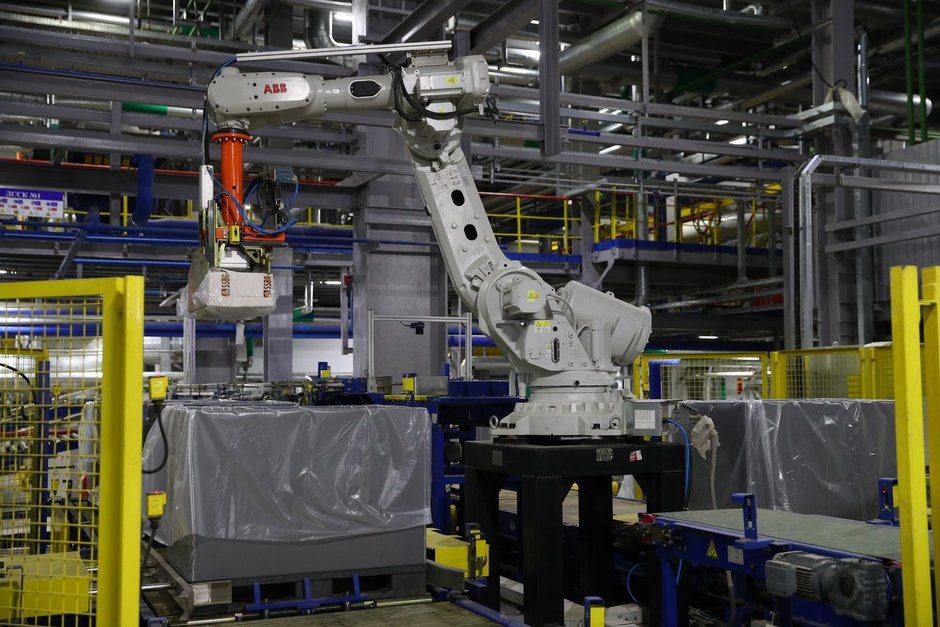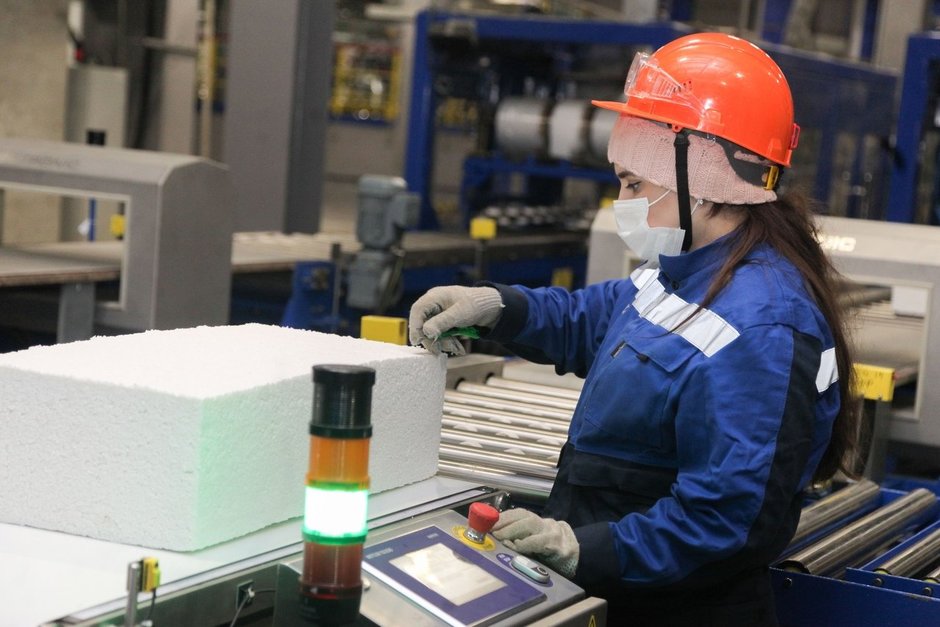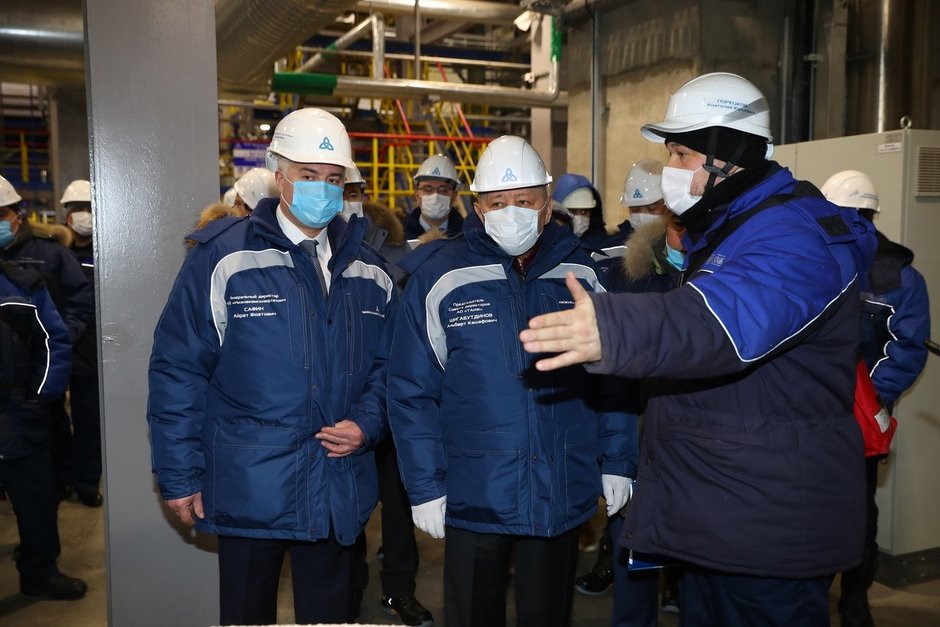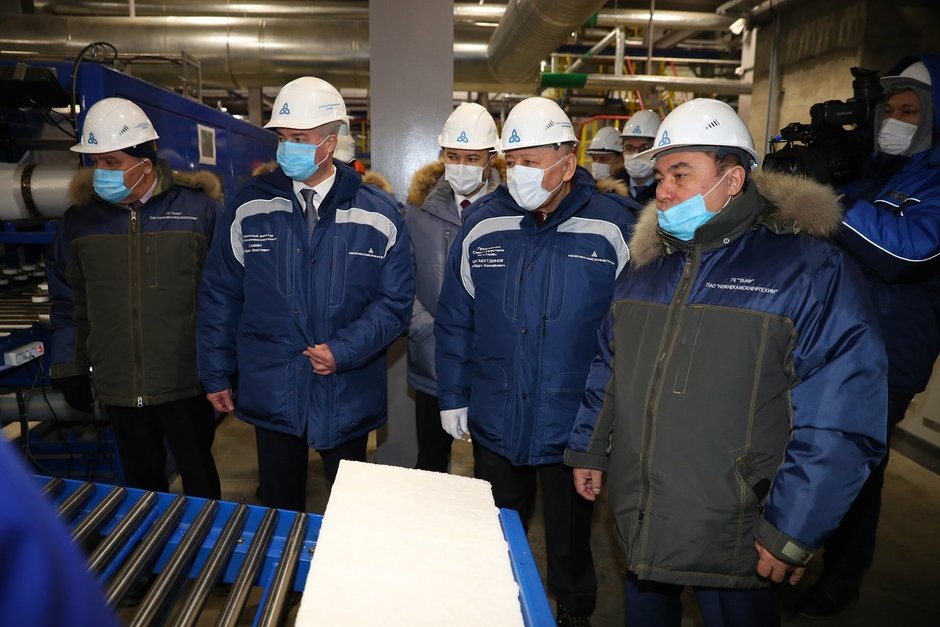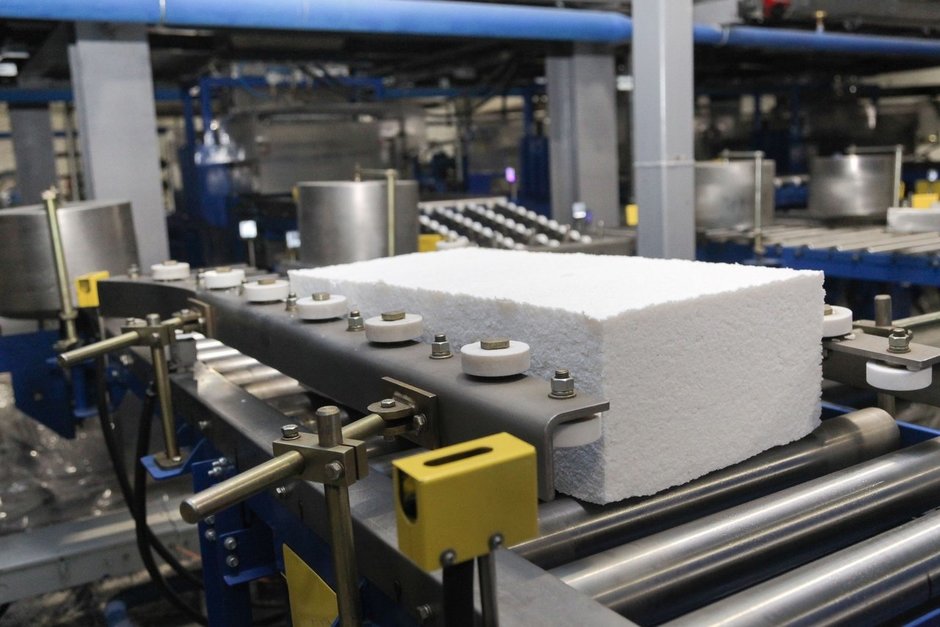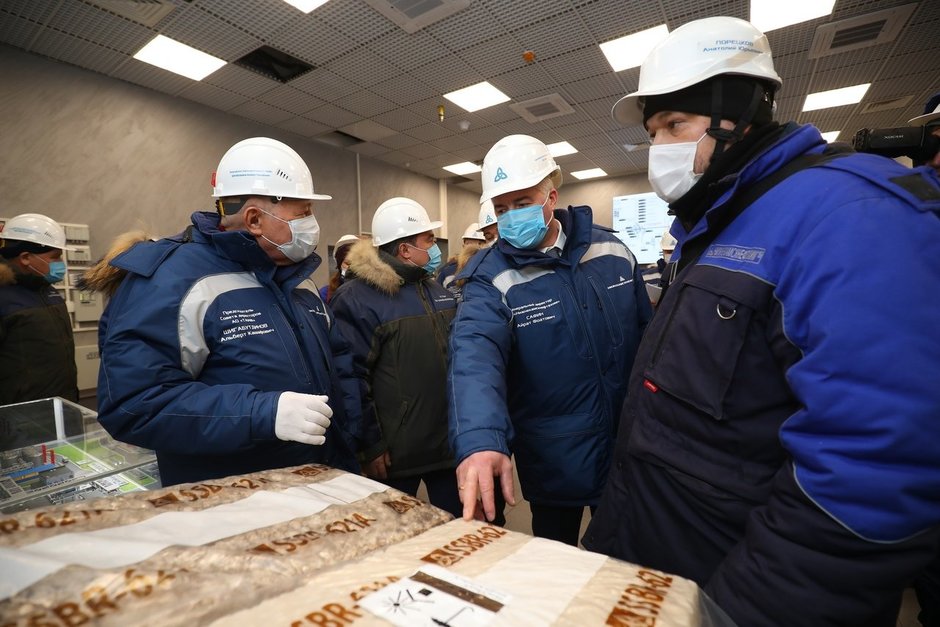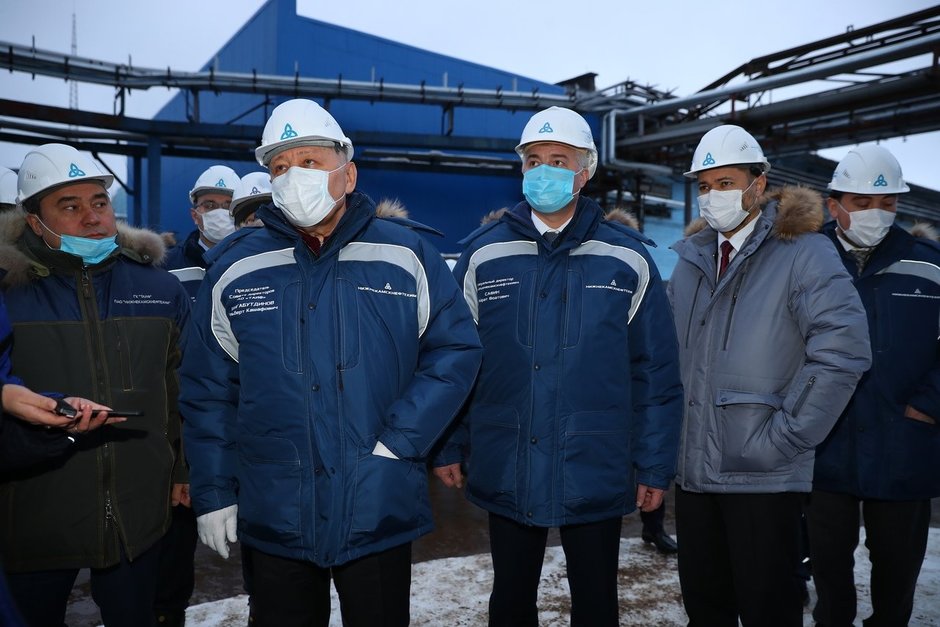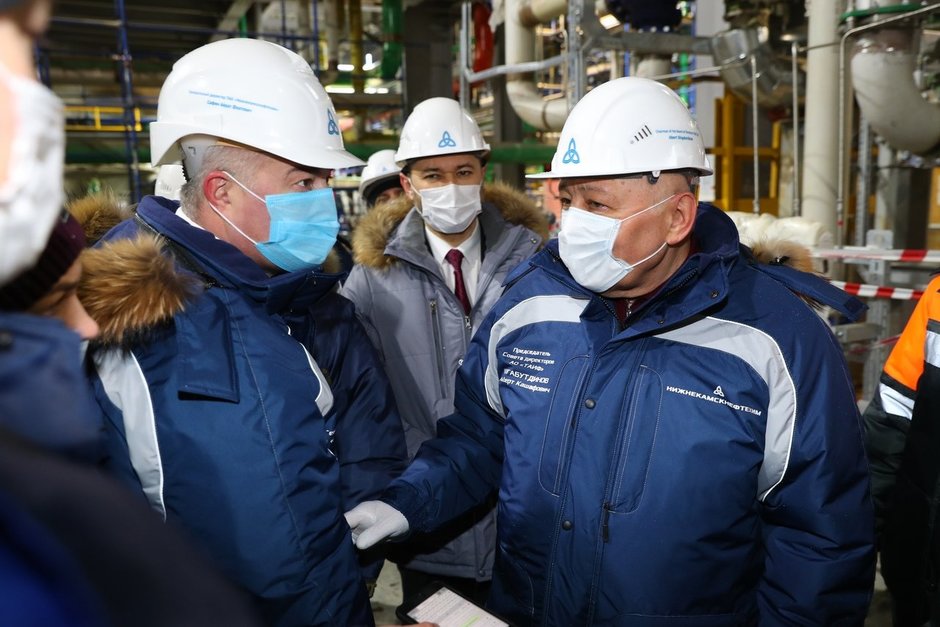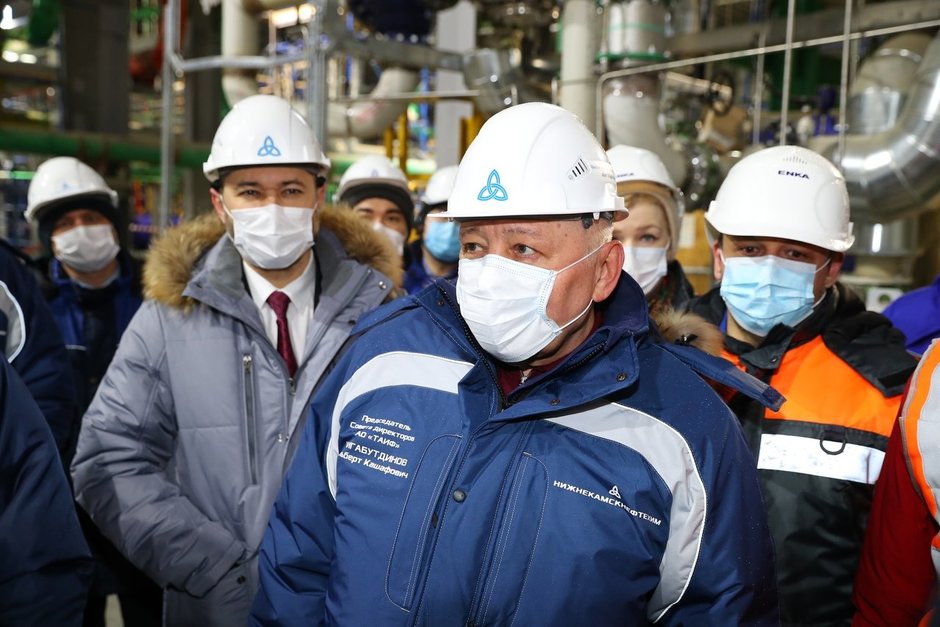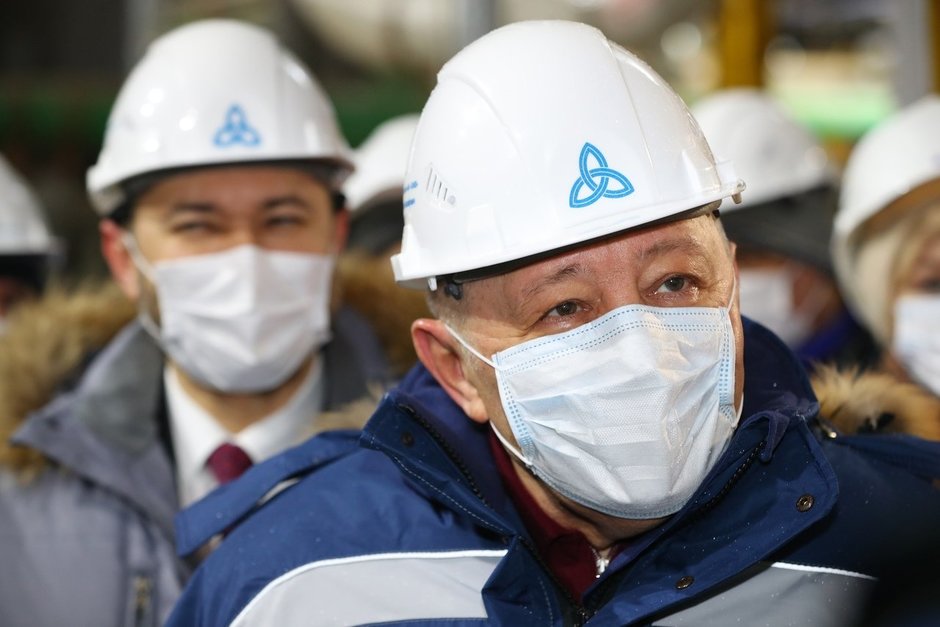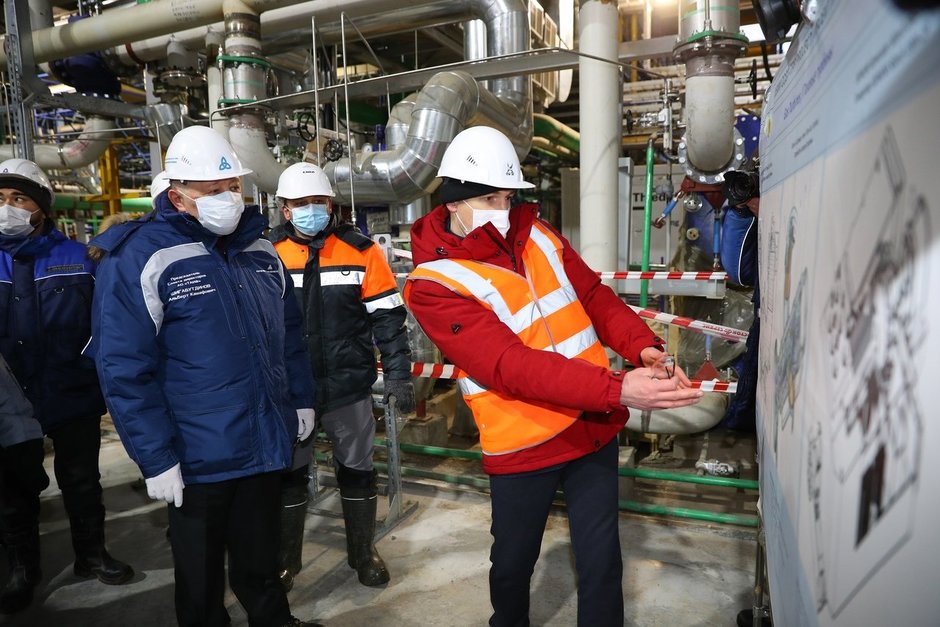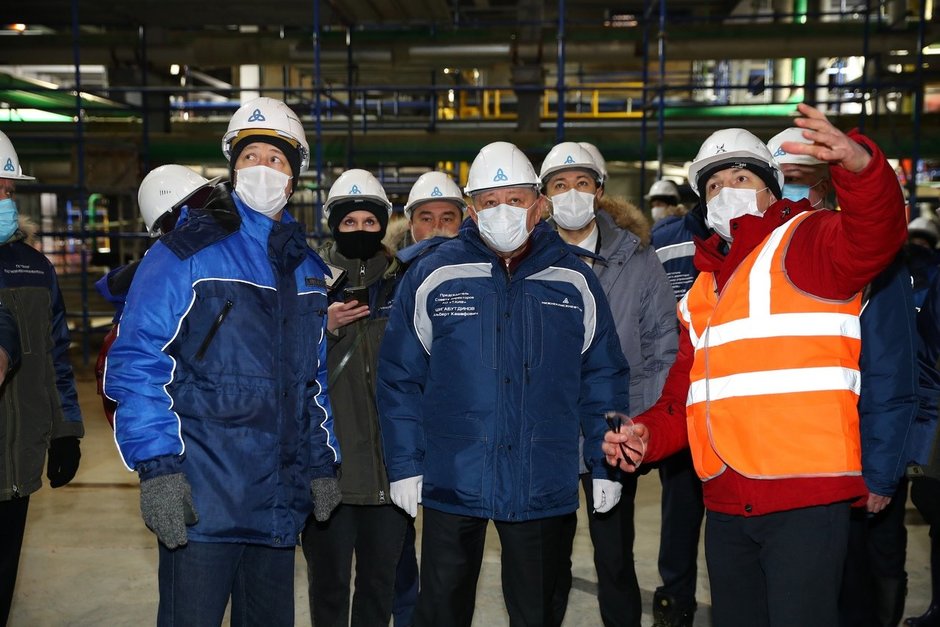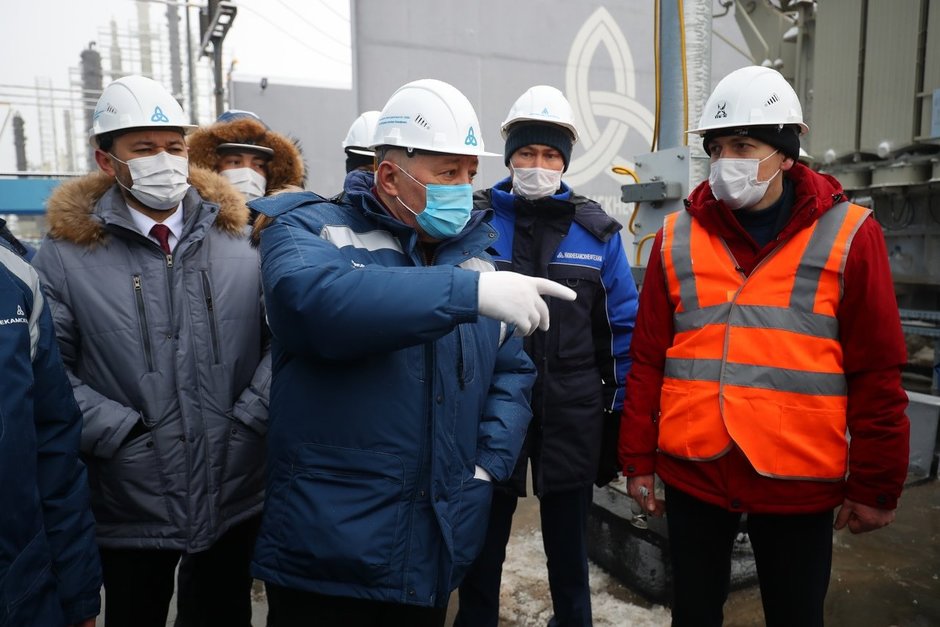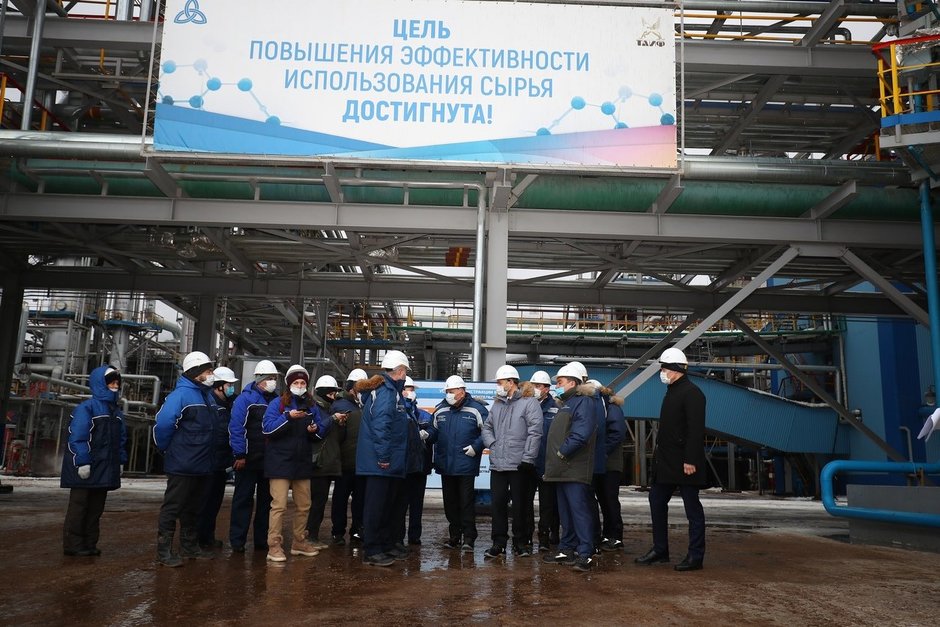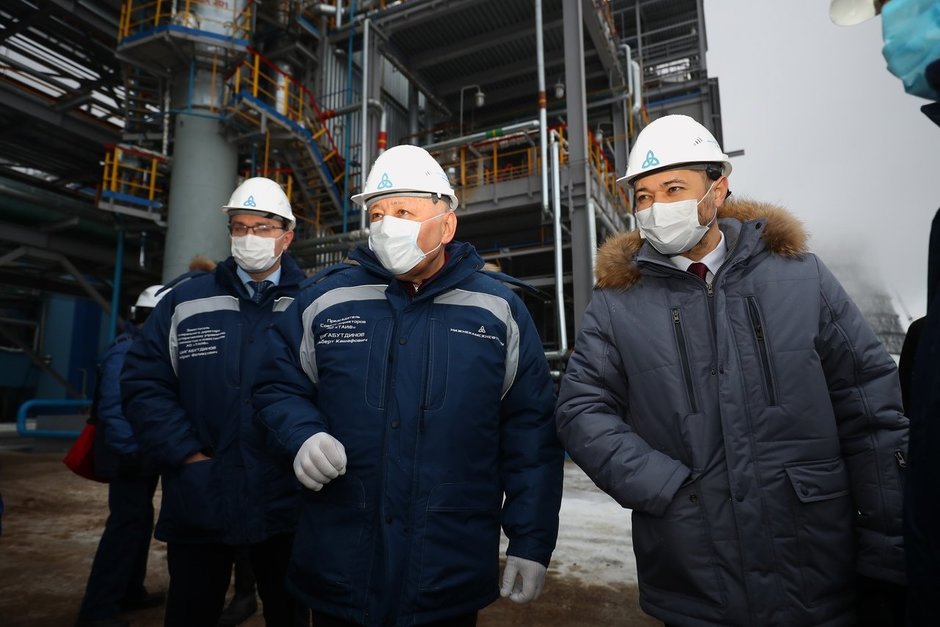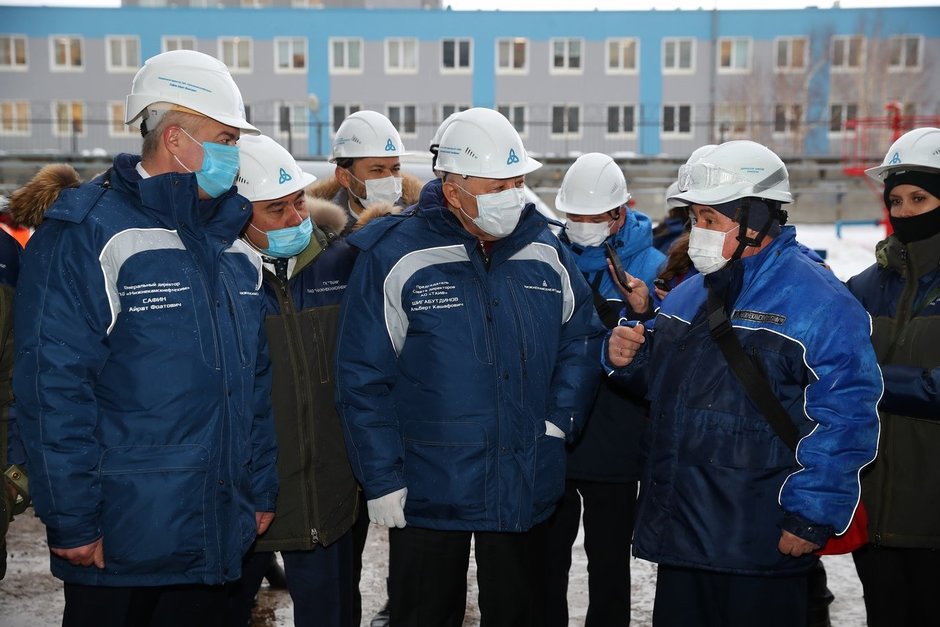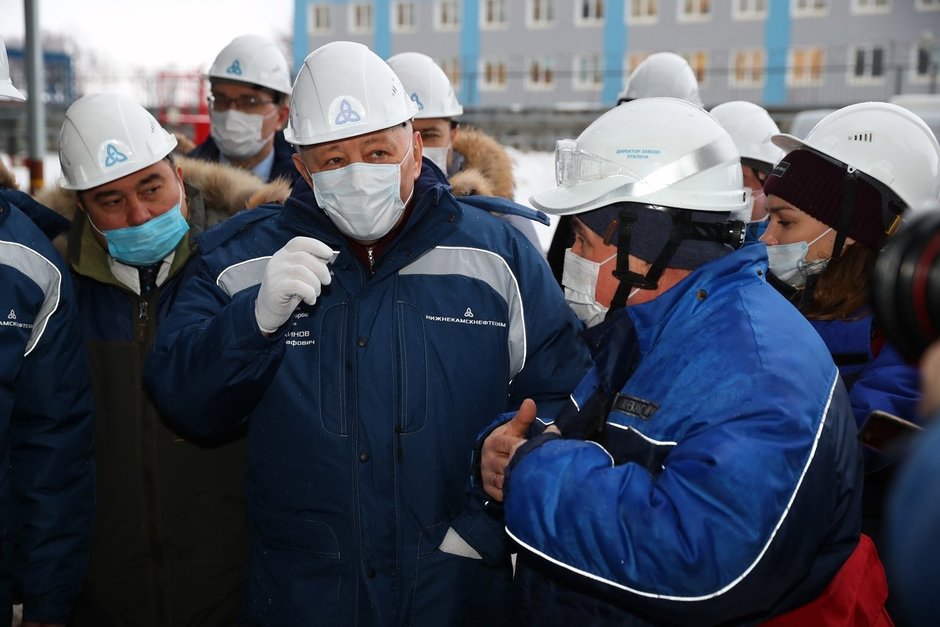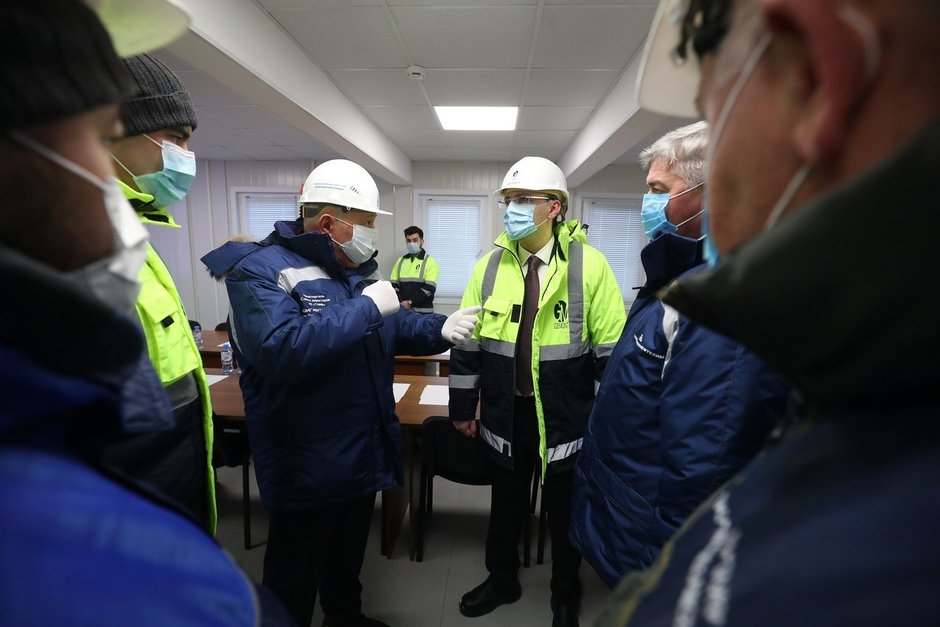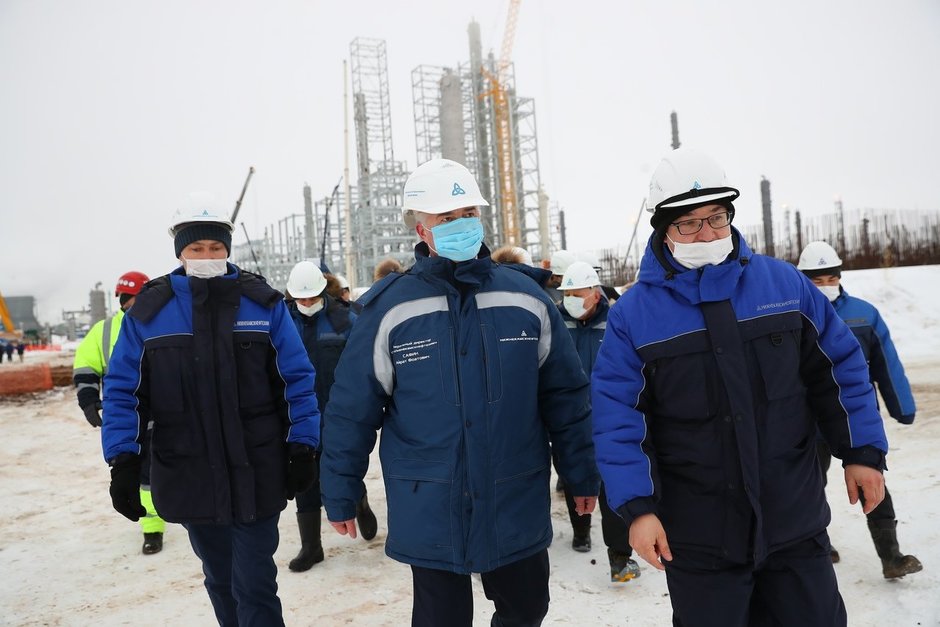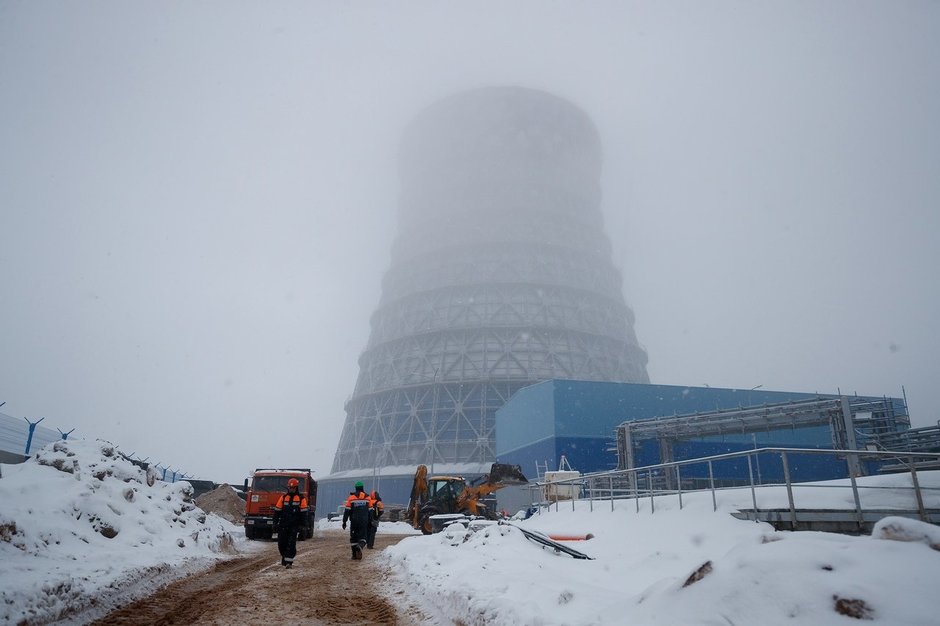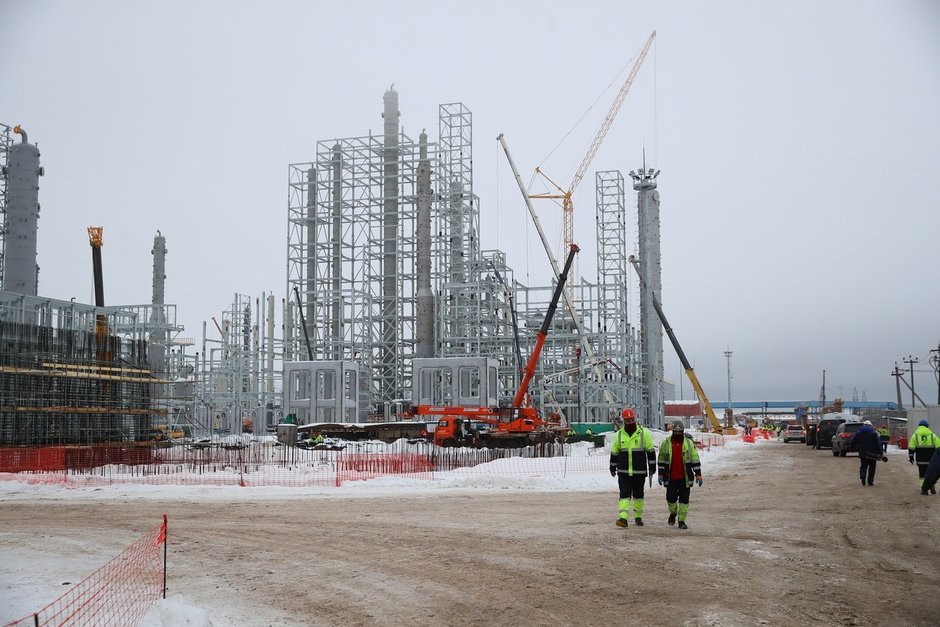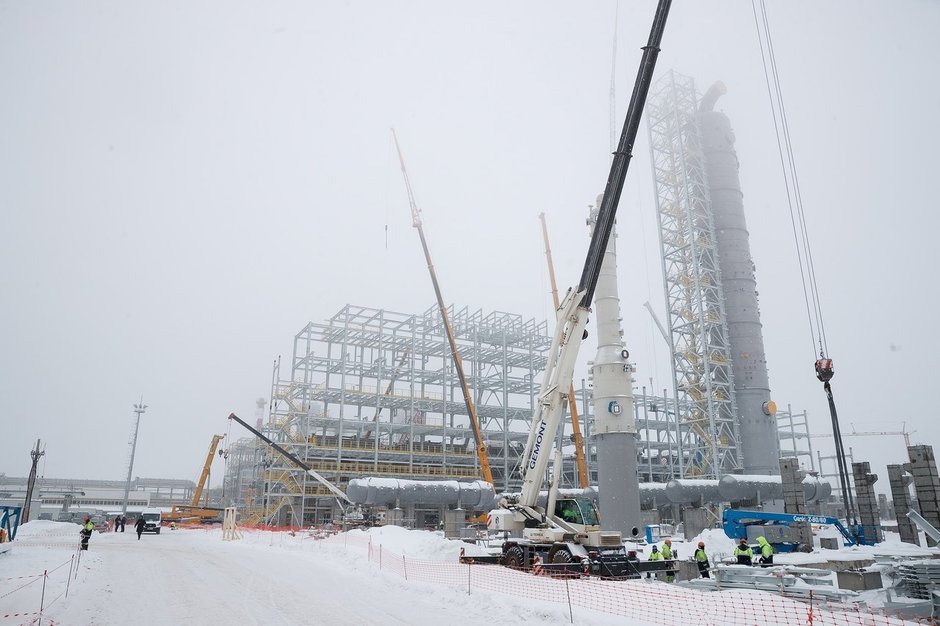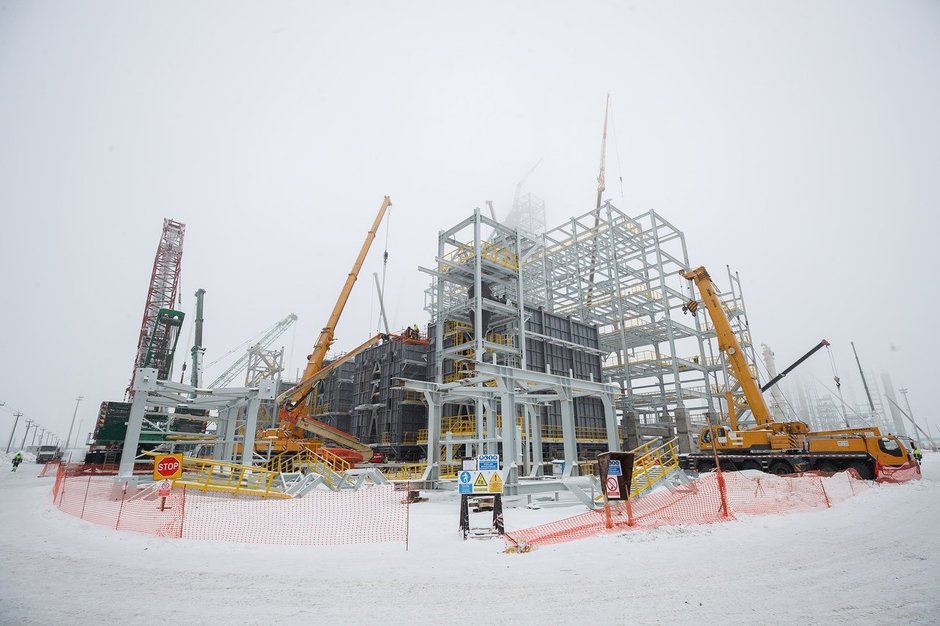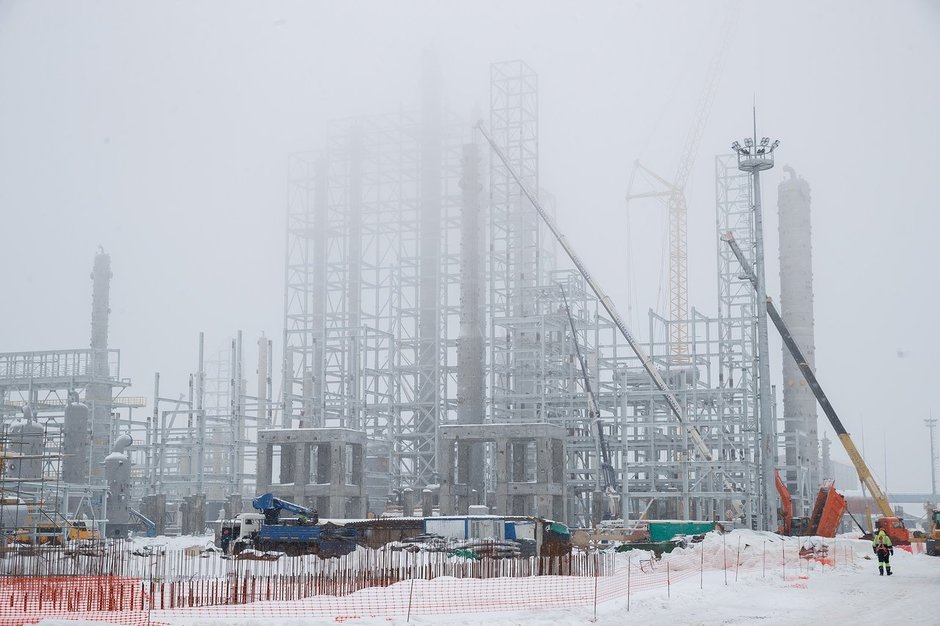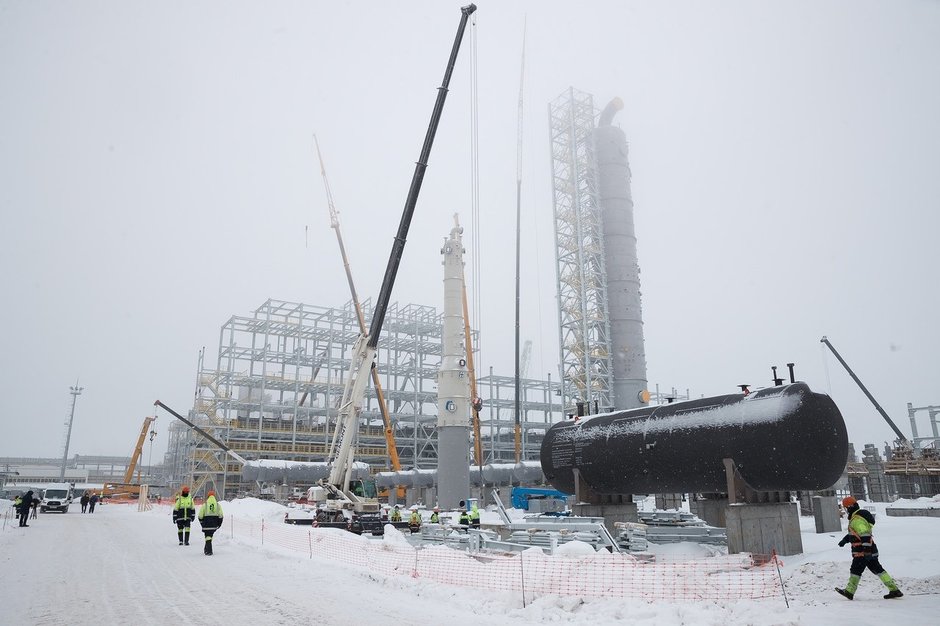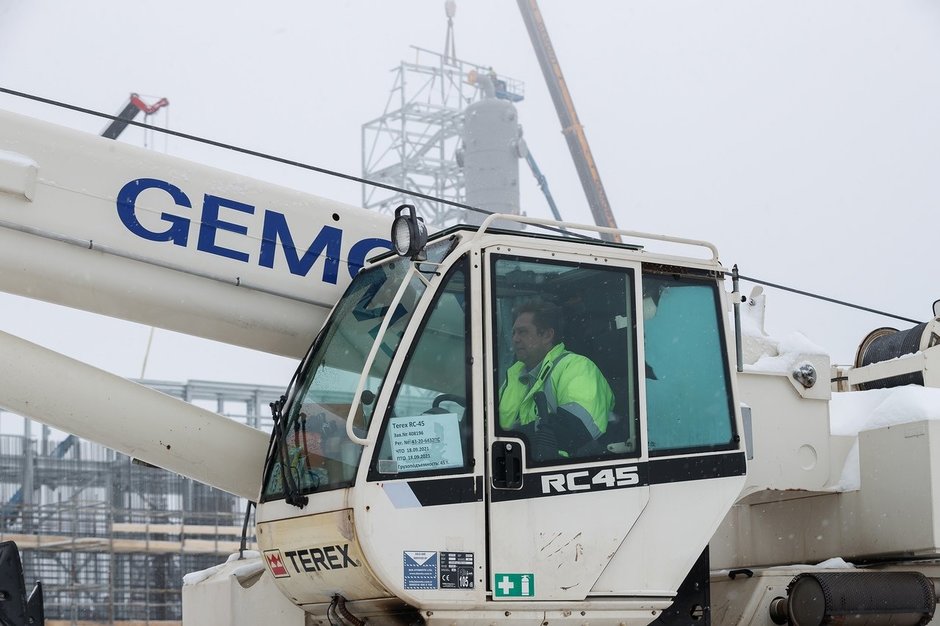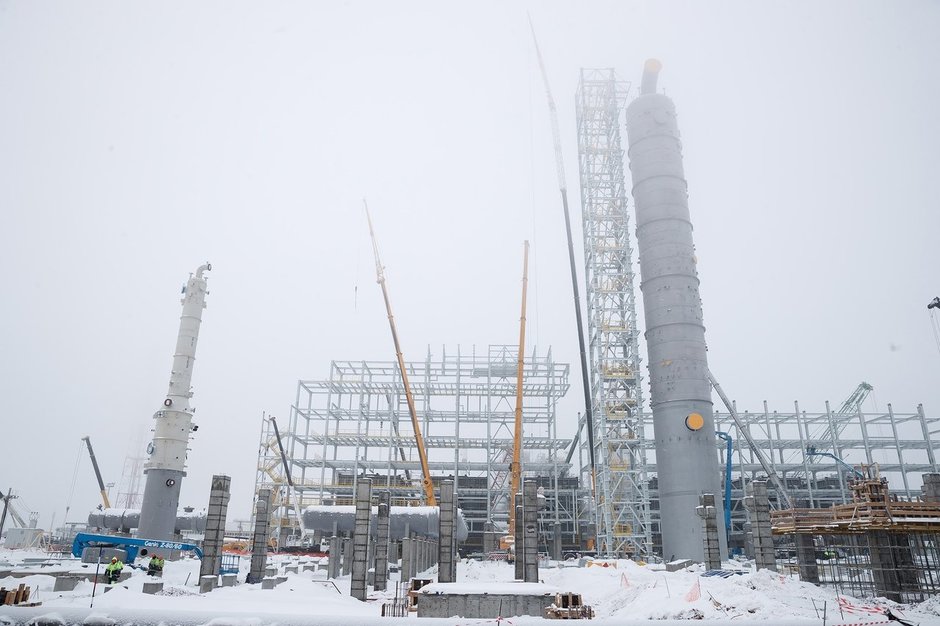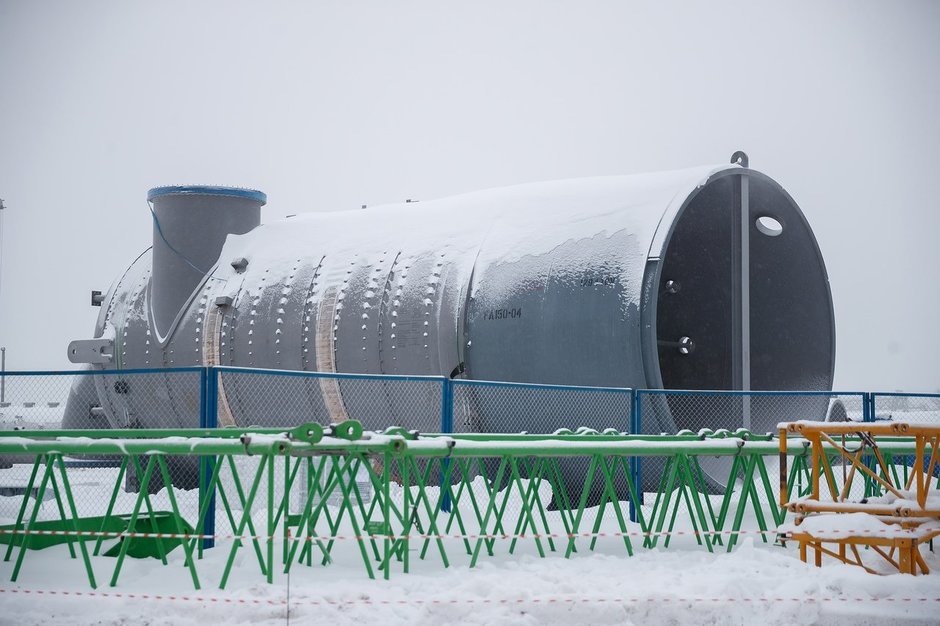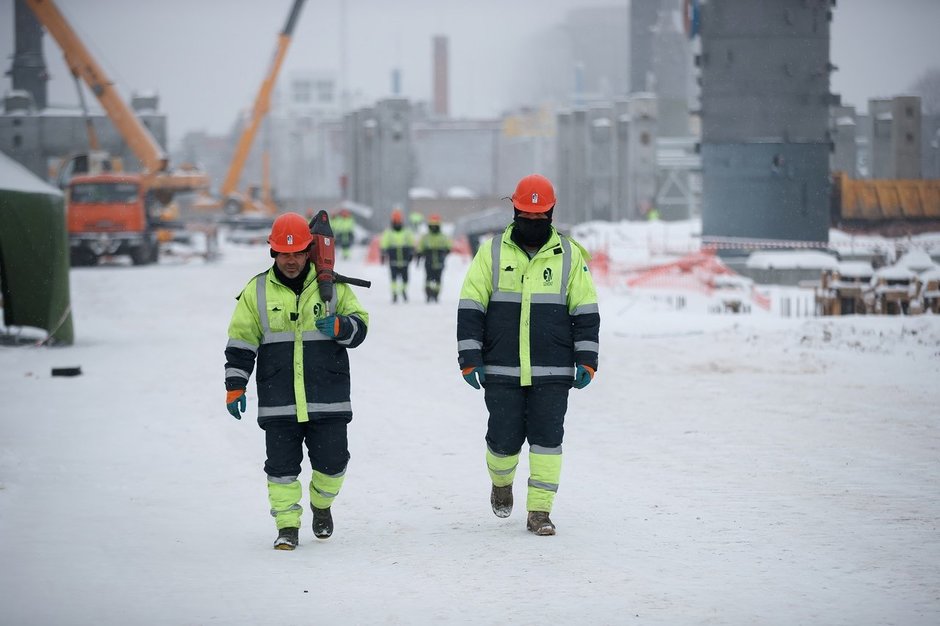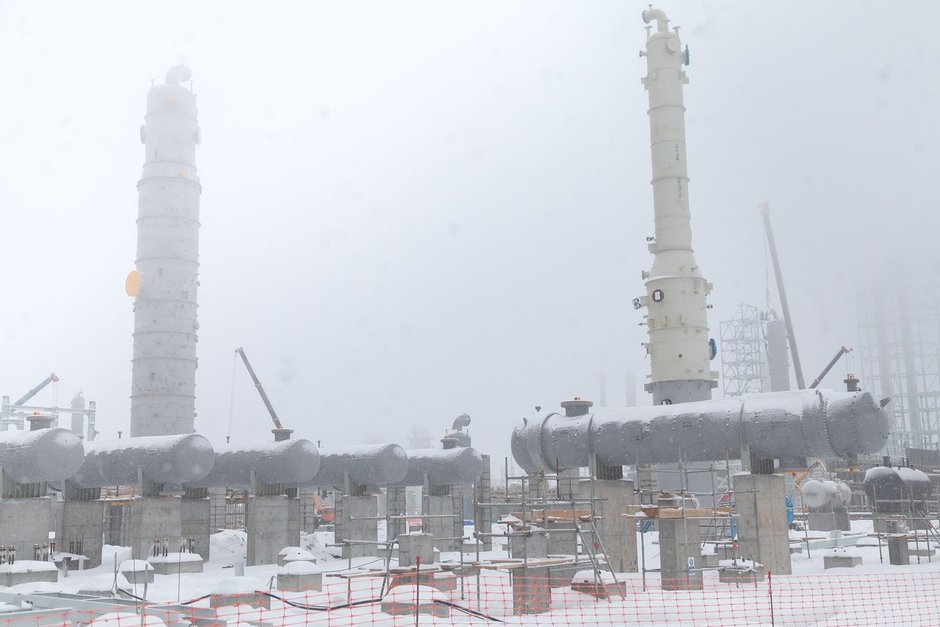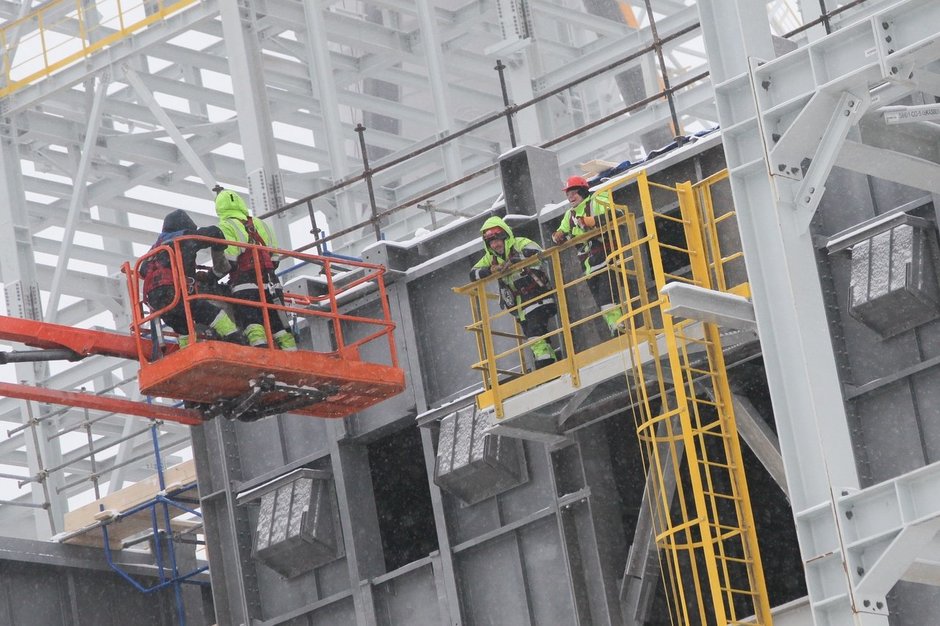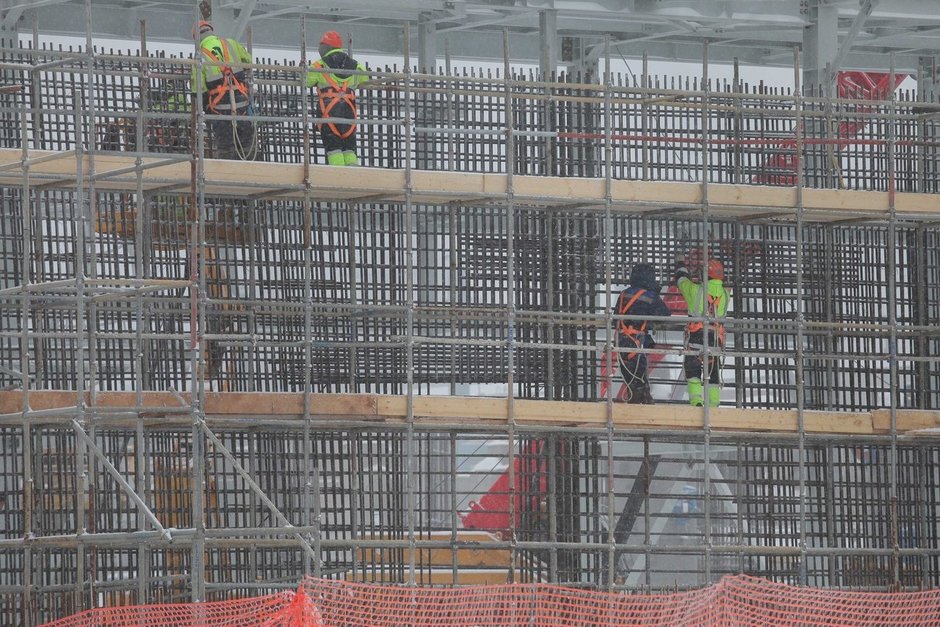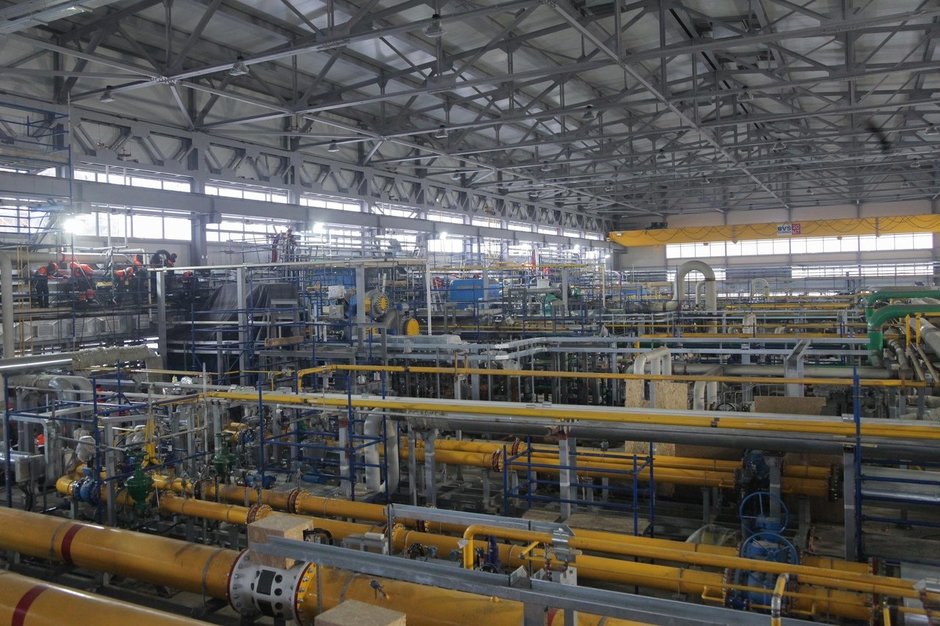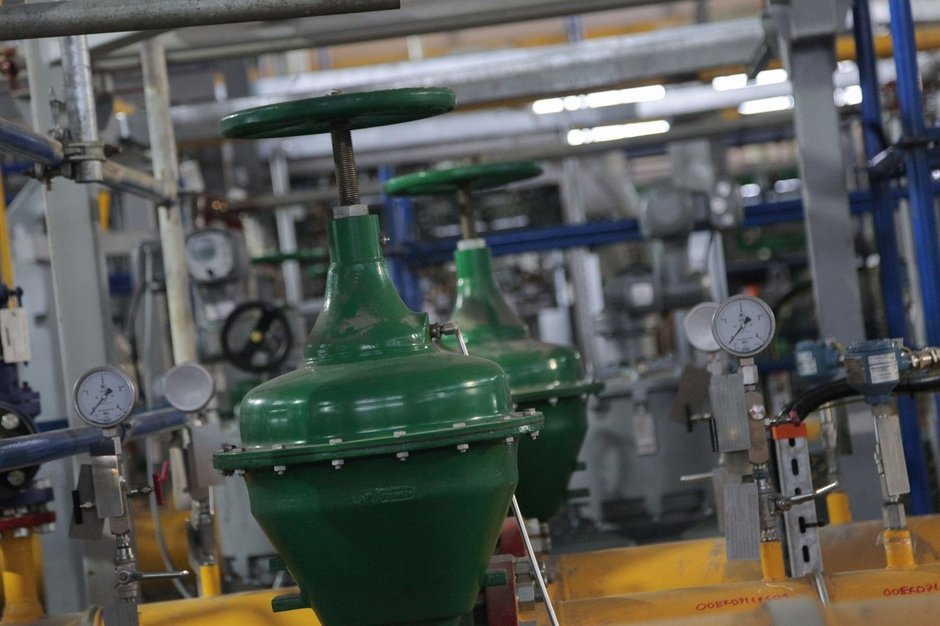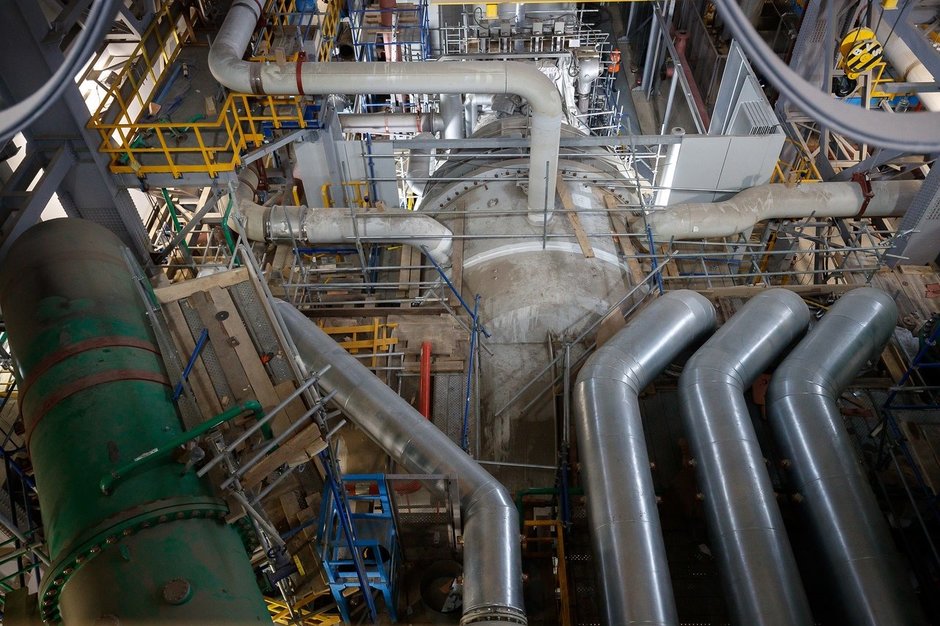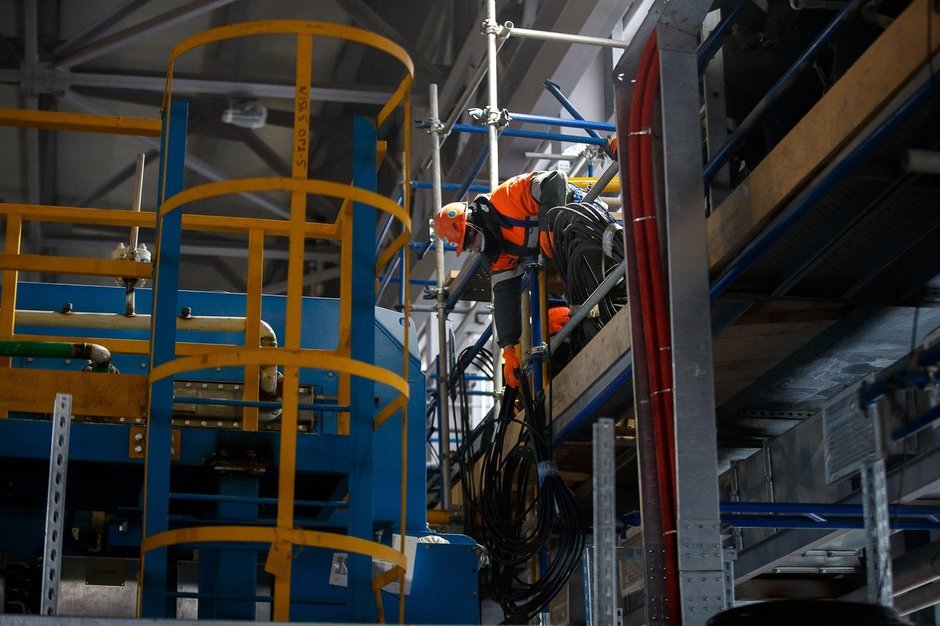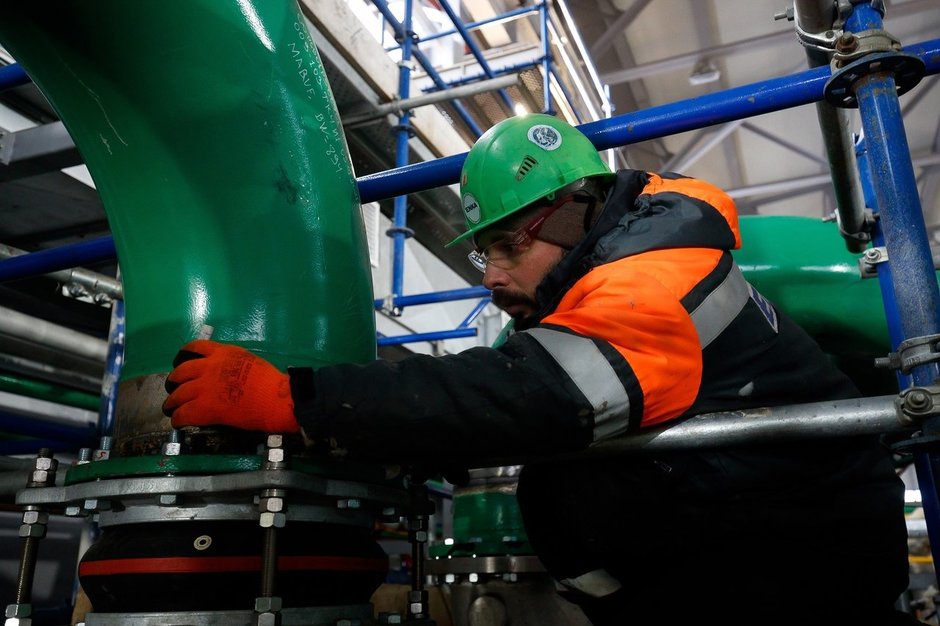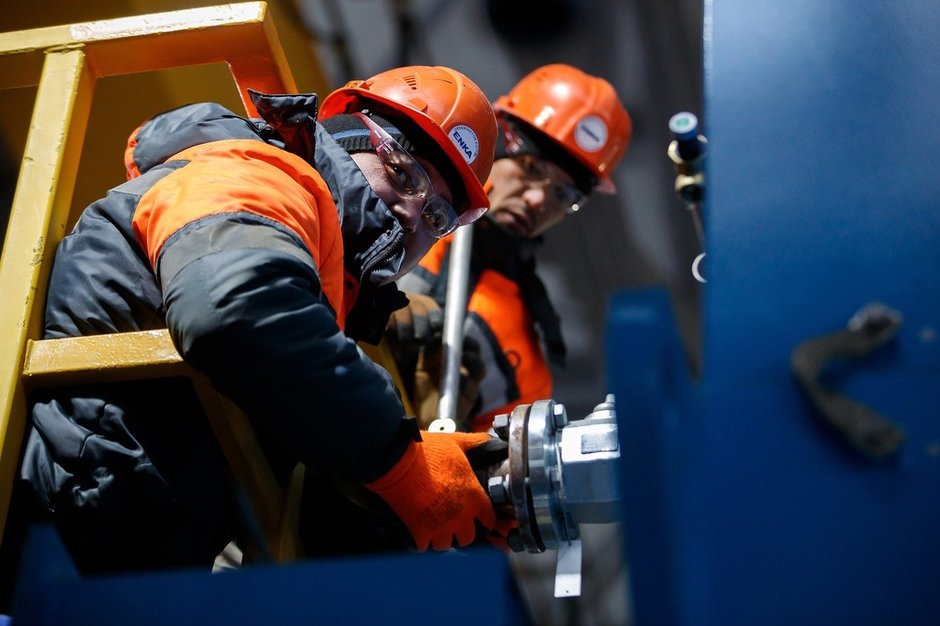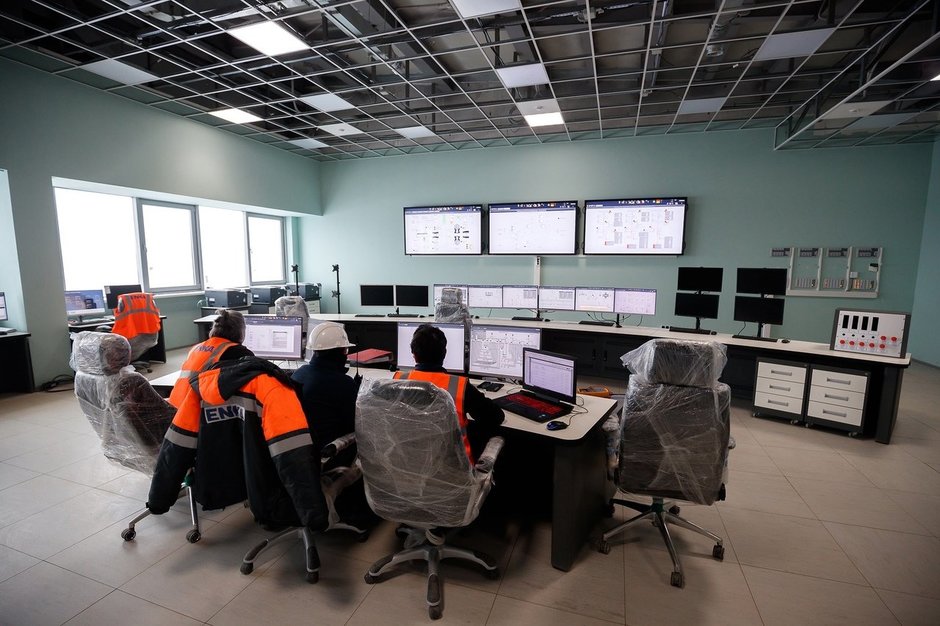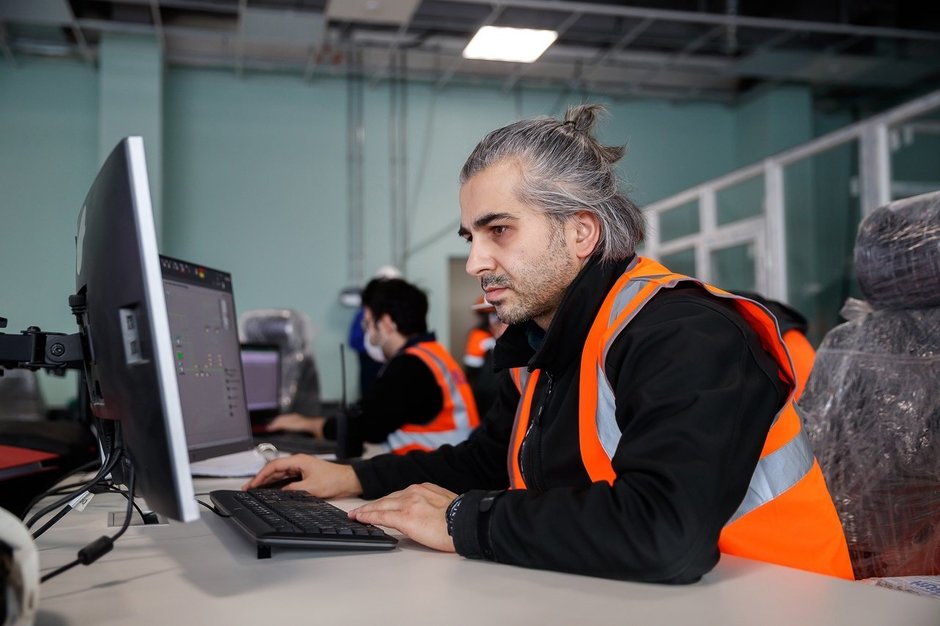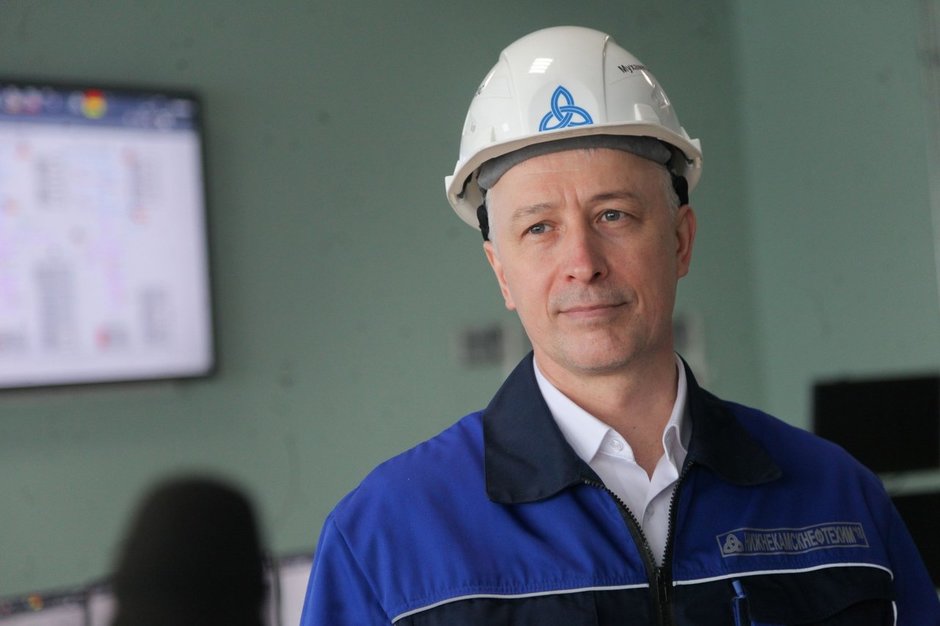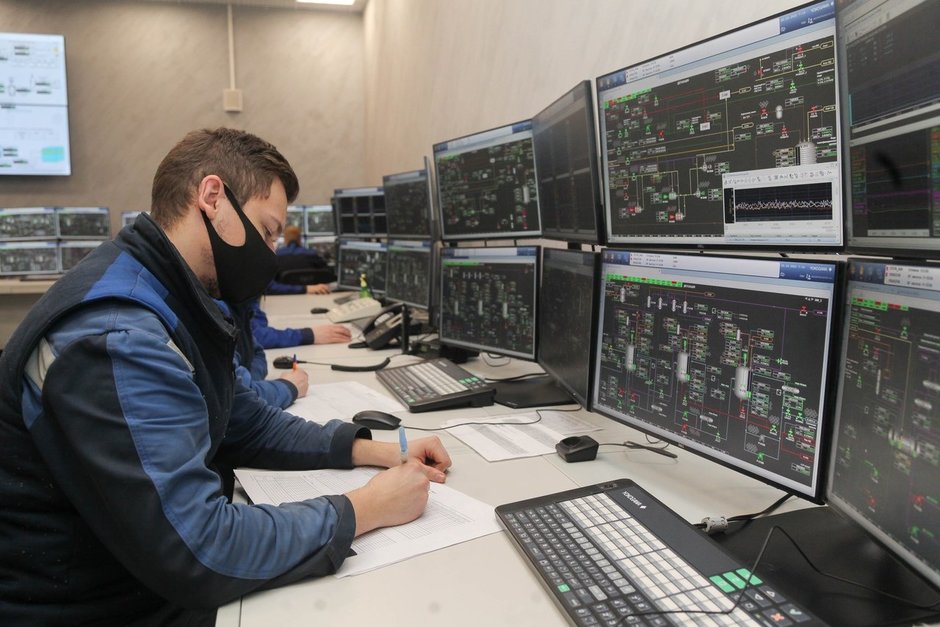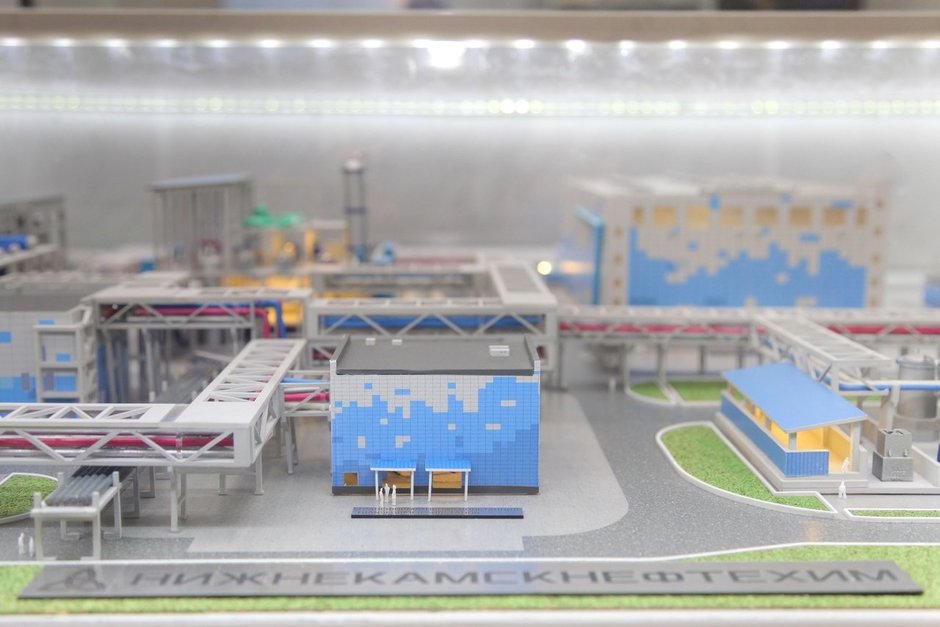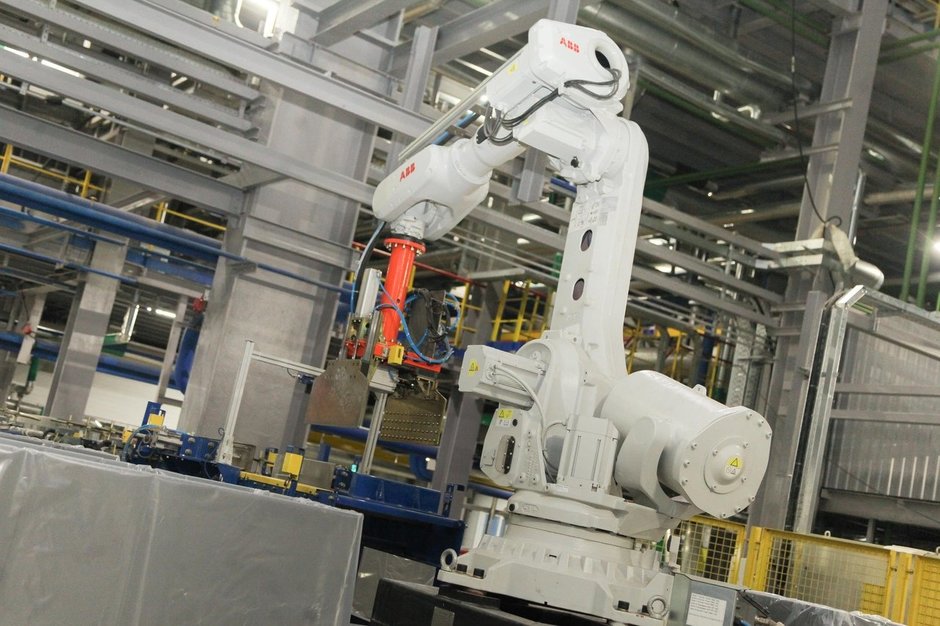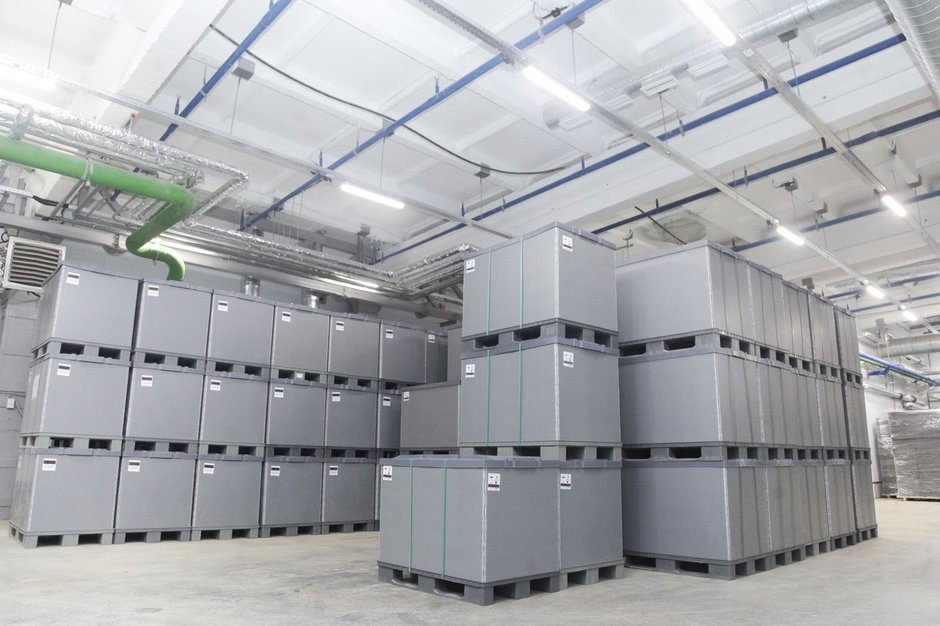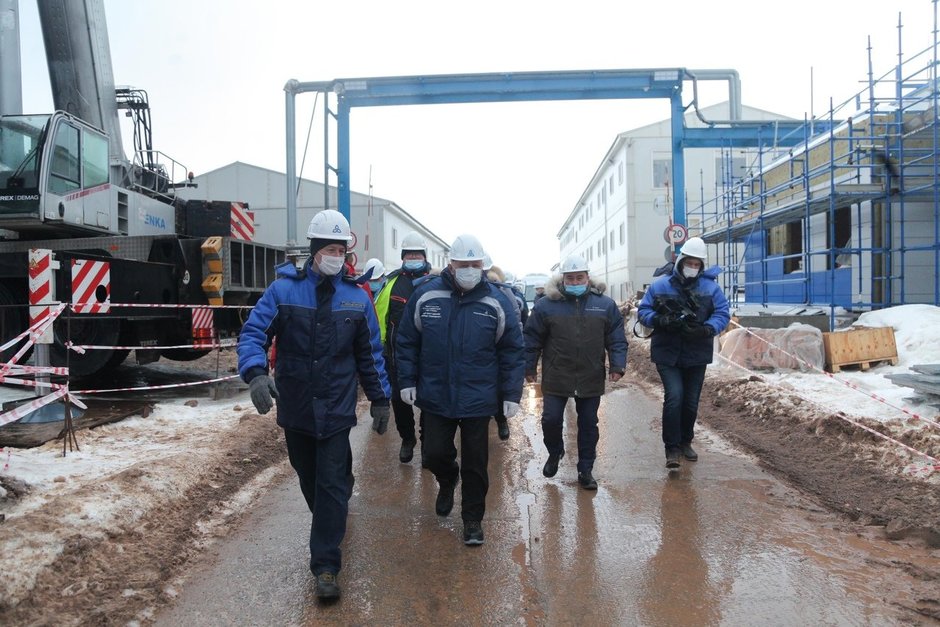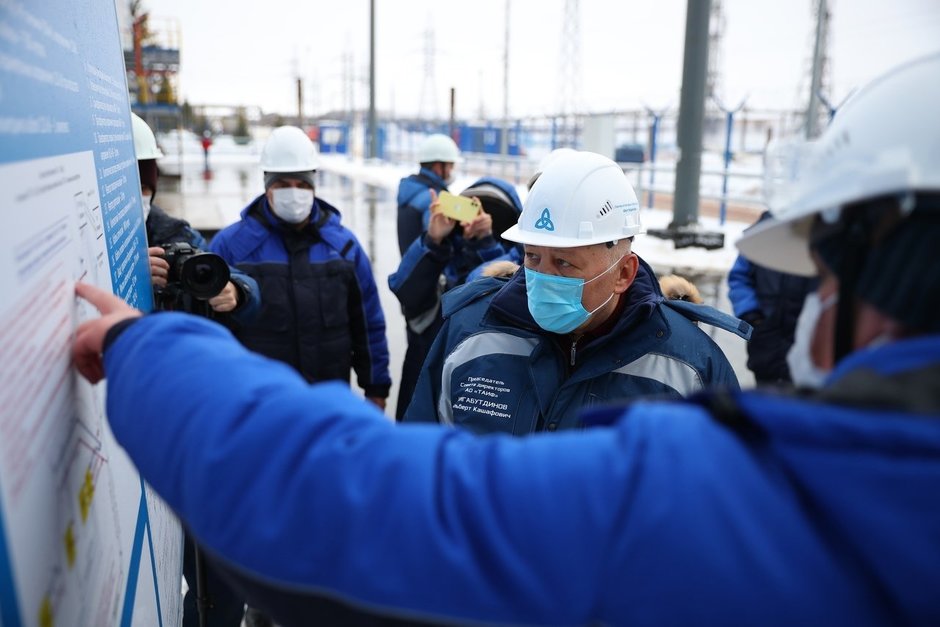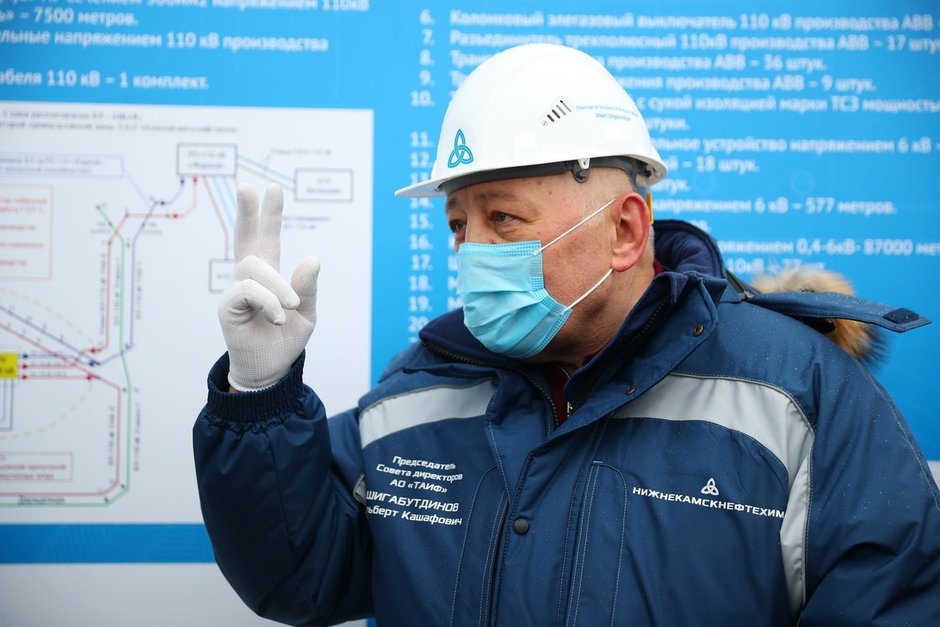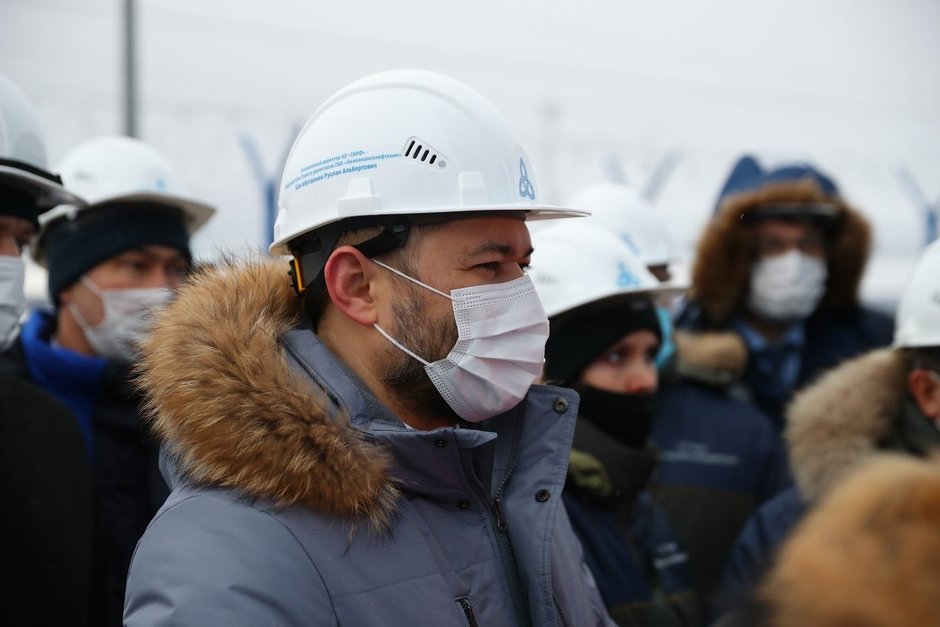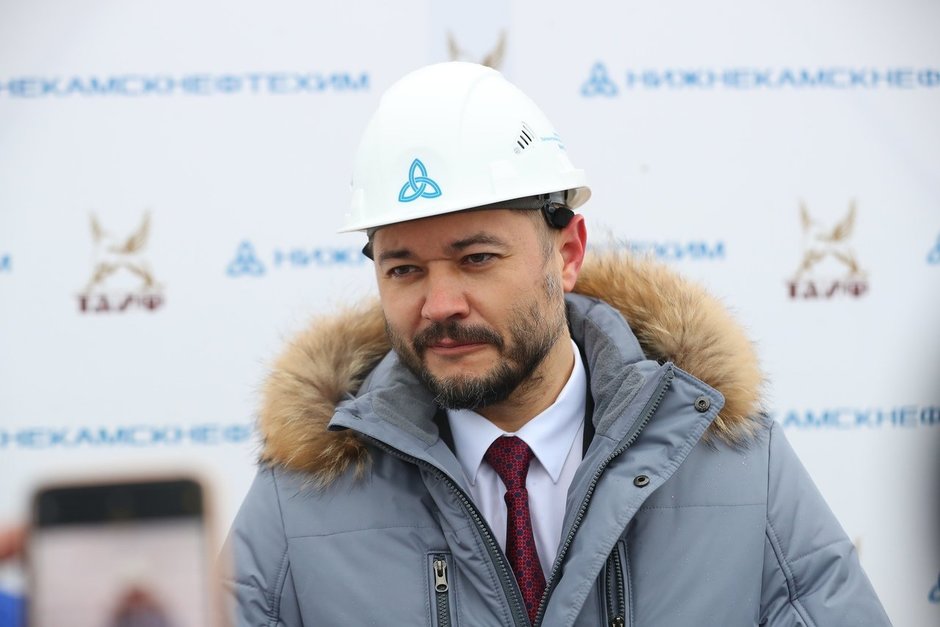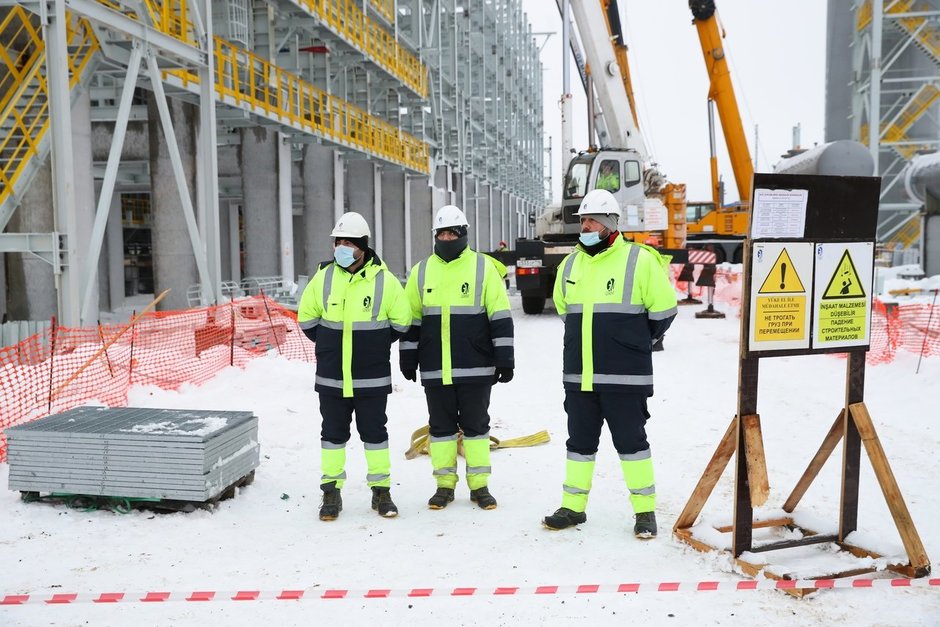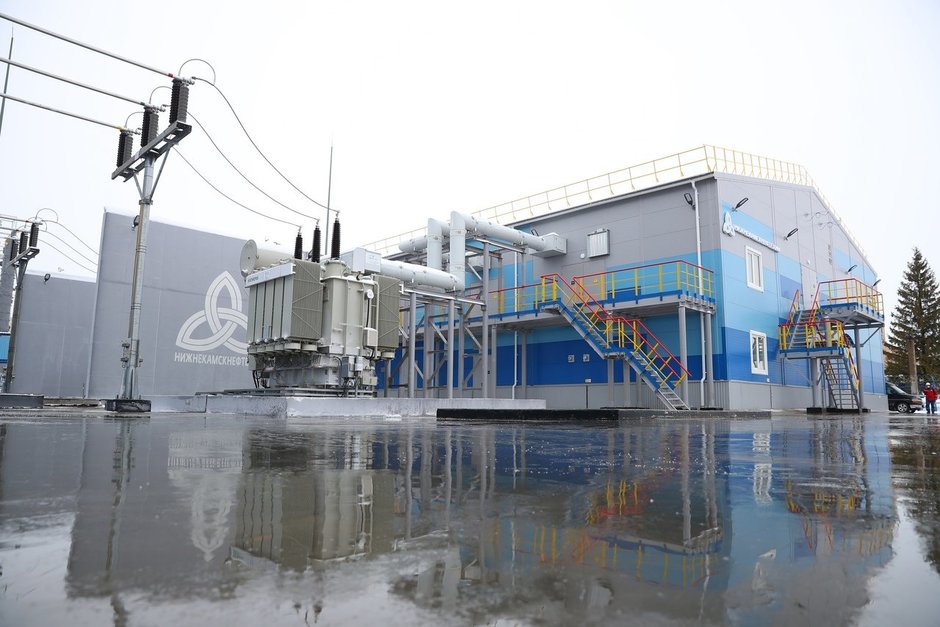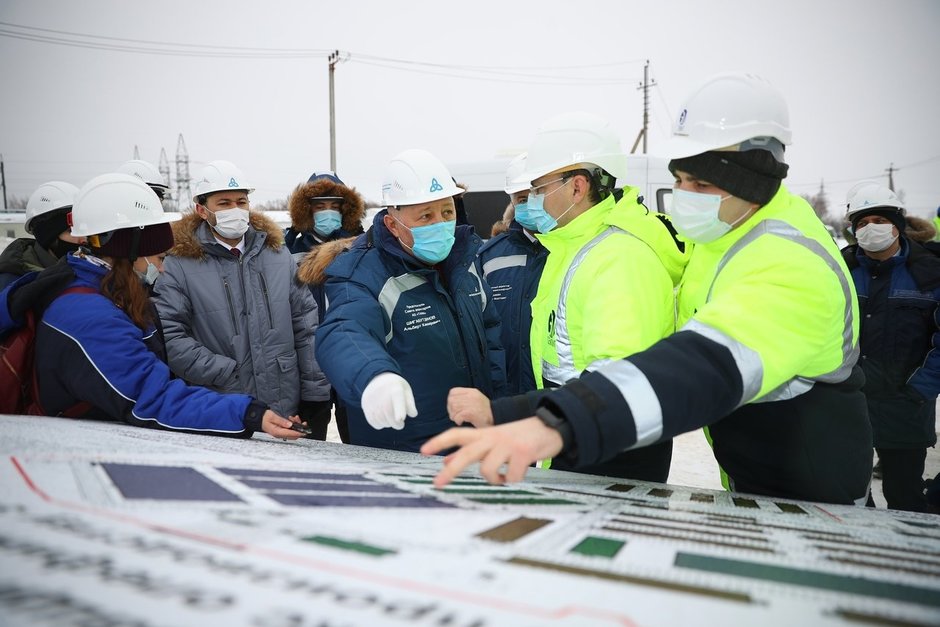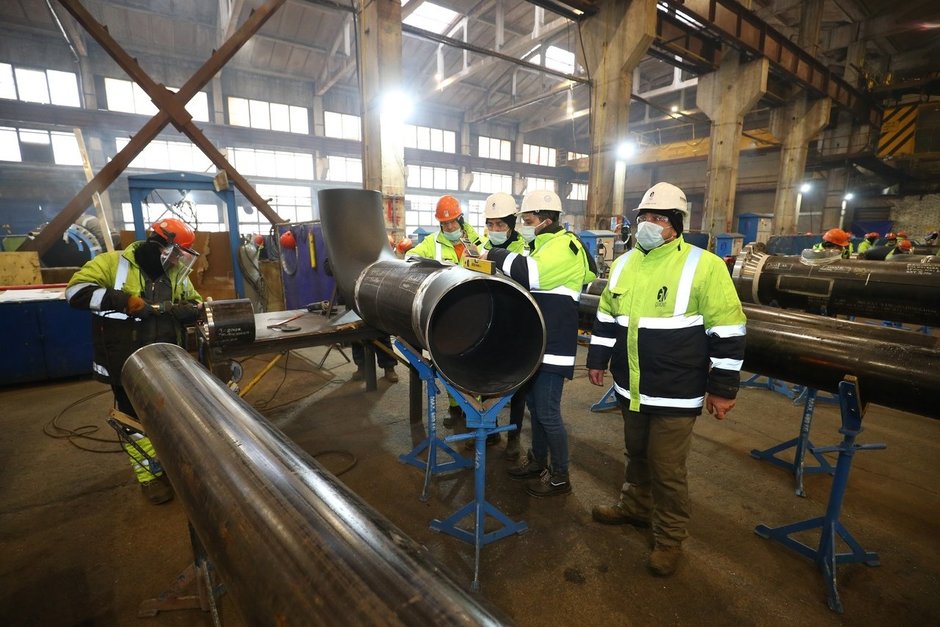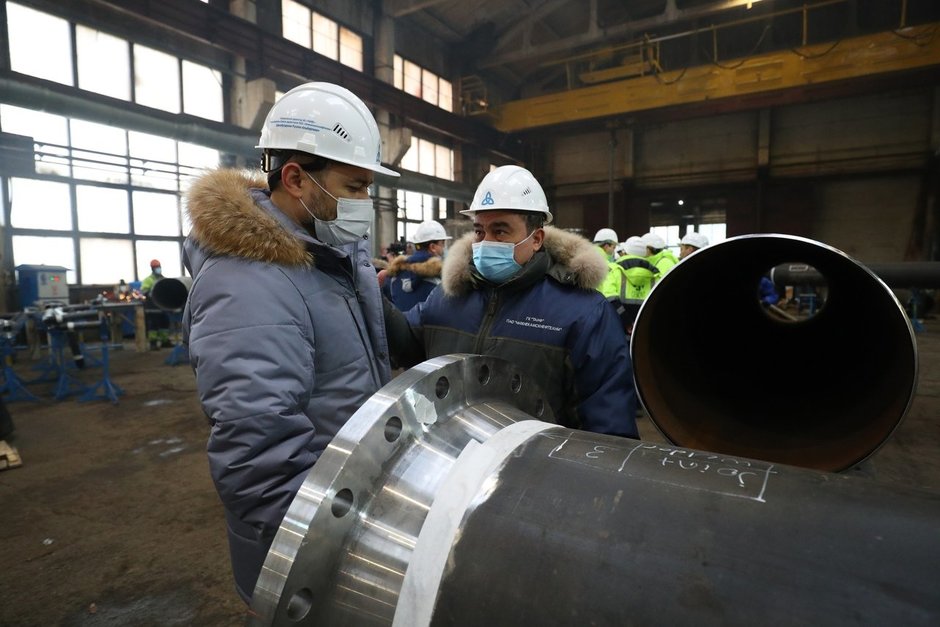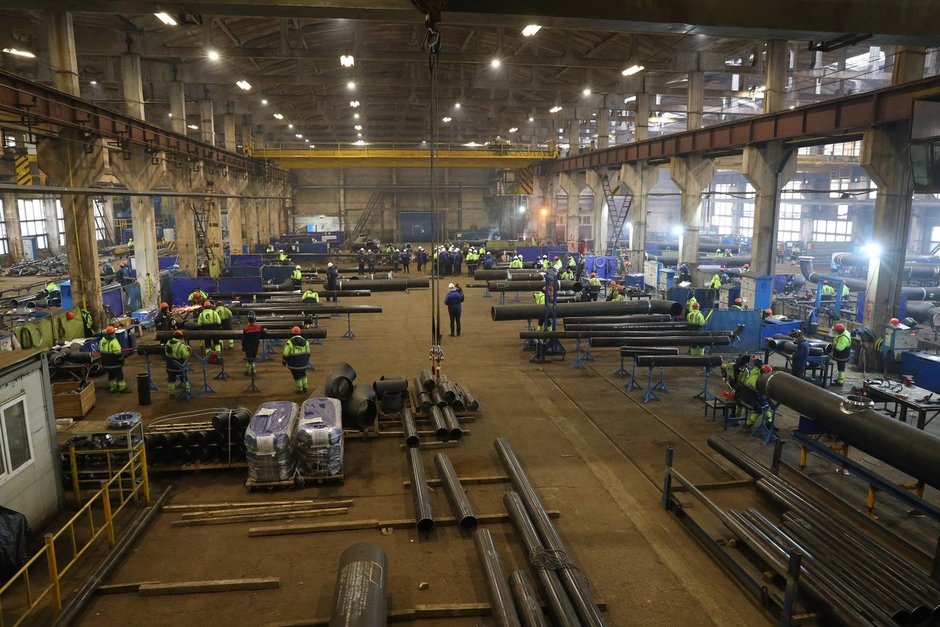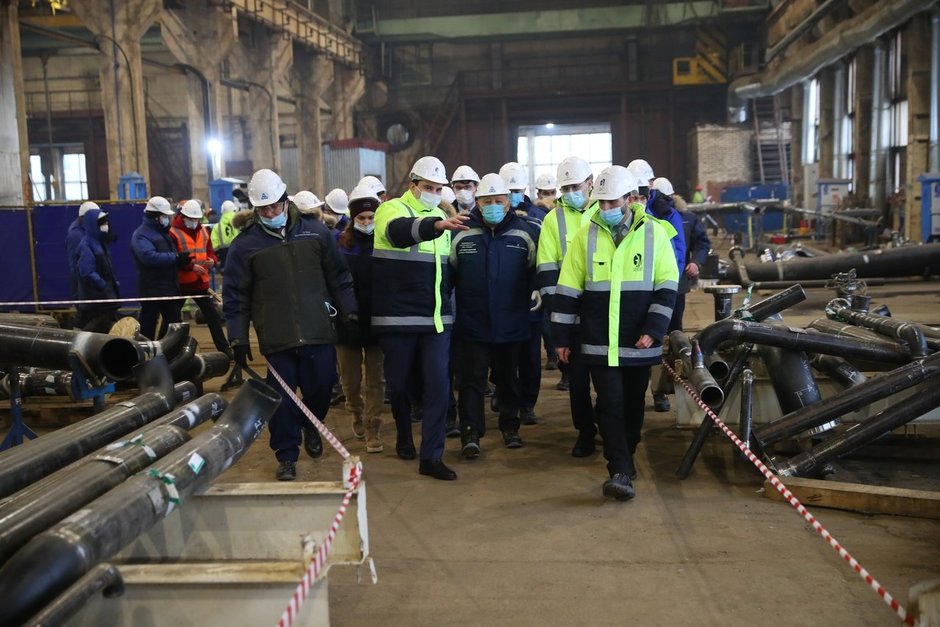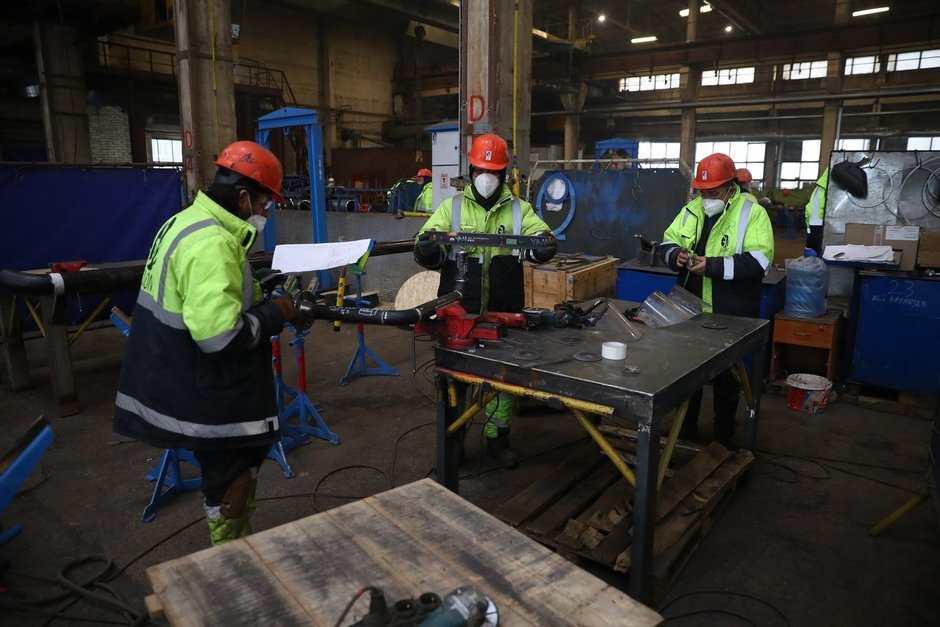Ruslan Shigabutdinov: 'We are a global company and can offer a full range of products for the best tyres'
Nizhnekamskneftekhim continues the implementation of investment projects
The largest specialised enterprise in Europe — Nizhnekamskneftekhim — is systematically widening its product line, despite the global crisis caused by the coronavirus pandemic. This year, under the brand of Nizhnekamskneftekhim, a new offer will appear on the rubber market that is relevant for manufacturers of “green tyres” — divinyl-styrene synthetic rubber. The anti-crisis project was implemented by petrochemists in just two years. In parallel with this, the construction of the new olefin complex is underway. Besides, it is going to become a driver for the emergence and development of many production facilities for the production of final goods in Tatarstan and Russia as a whole, which will use polymer products produced at the new complex. This fully corresponds to the import substitution programme implemented at the federal level. The management of TAIF JSC, with the support of which the implementation of major investment projects is underway, has arrived to congratulate the employees of Nizhnekamskneftekhim on the development of the new type of rubber and to get acquainted with all the details of the work.
New impetus for development
Nizhnekamskneftekhim PJSC, part of TAIF Group, continues its dynamic development despite the current unfavourable economic situation. On 5 February, the management of TAIF and Nizhnekamskneftekhim inspected the key facilities under construction and new facilities of the enterprise: the DSSK production facility, the CCGT-TPP site, the EP-600 complex and a number of other production sites. The delegation examined in detail all of the progress of works, discussed a variety of issues concerning not only projects but also the welfare of the workers.
To date, the petrochemical company has successfully implemented the project for the production of divinyl-styrene synthetic rubber (DSSK) with a capacity of 60,000 tons/year. The first briquette rolled off the assembly line on January 25, 2021. “Of course, it is ugly, with impurities, but this is the most expensive for us — the first one. We'll hand it over to the museum. The next ones went cleaner," said Anatoly Poretskov, the production director, with trepidation.
The new production facility was inspected by Ruslan Shigabutdinov, the director general of TAIF JSC, chairman of the board of directors of Nizhnekamskneftekhim PJSC, and Albert Shigabutdinov, his chief development adviser. Accompanied by the head of Nizhnekamskneftekhim, Ayrat Safin, they visited the workshop and operator room of the DSSK plant. Anatoly Poretskov told the audience about the new brand of rubber and about the current activities:
The project has been implemented to improve the operation of divinyl-styrene rubber production with a capacity of 600,000 tonnes a year. The main field of application is the tyre industry, the so-called environmentally-friendly, 'green' tyres, which are designed to reduce fuel consumption. The construction site has been designed and prepared since 2018. In 2019, after the construction permit, we started the zero cycle. In 2020, installation works on electrical and automation systems was mainly carried out. We started commissioning, and on January 25, the new type of rubber was launched and released.
“Why is this rubber of the sixth or fifth generation?" Albert Shigabutdinov asked.
“This is a new generation of tyres with a high content of styrene. Previous brands were with a smaller amount of styrene, by 8-10%. Now we have already tested 20%, the so-called 628-th brand, which will further improve the quality," said Anatoly Poretskov.
The tyres made of divinyl-styrene synthetic rubber (DSSK) have good wear resistance, frost resistance and dynamic endurance. Another feature is the low rolling resistance, which reduces fuel consumption. DSSK is also intended for use in the rubber and shoe industry, in the manufacture of conveyor belts.
Besides, the new production facility has launched the production of thermoplastics (TEP), which are additives to asphalt pavement. The key features of TEP include high mechanical strength and the possibility of repeated processing without harm to the environment.
Over this time, about 27,000 square metres of structural concrete, about 7,000 tonnes of metal structures were installed here, 580 pieces of equipment were installed, and more than 150 km of pipeline were installed.
According to petrochemists, the commissioning of DSSK production will reduce the negative impact on the environment.
Even in the process of designing the new production facility, the task was set to use the most environmentally friendly modern technologies. Here, an air emissions purification unit is used at the rubber extraction stage — this additional measure will prevent the ingress of pollutants into the atmosphere.
The DSSK plant will be provided with its own raw materials — the new olefin complex with a capacity of 600,000 tonnes of ethylene a year will produce up to 90,000 tonnes a year of divinyl and up to 212,000 tonnes of styrene, which are the main products in the production of DSSK.
Increase in production of high-value target products
The construction of the ethylene plant is also in full swing. This was confirmed by the management of TAIF Group, which then visited the new industrial facility.
The project of the olefin complex is included in the long-term Strategy for the development of the chemical and petrochemical complexes of Russia until 2030. The launch of the plant will reduce the export of petrochemical raw materials and increase the production of target products (rubbers and plastics) with high added value.
The works on the implementation of the project started in 2018. Starting from February 2020, German Linde AG started to supply the equipment. In May, the first batch arrived by water. In June, the first large-sized column was installed.
Five hundred and ten units of the main technological equipment have already been delivered: 113 — dynamic and 397 — static. Of these, 122 have been mounted. The work on the construction site continues around the clock, despite the difficulties due to coronavirus.
“The assembly of the radiant chamber is almost complete. We are starting to install the convection part. The assembly of metal structures is also continuing," said Lenar Nagimullin, the director of the EP-600 plant.
“There are six furnaces with a capacity of almost 120,000 tonnes of ethylene a year,” continued Lenar Nagimullin.
“Why 'almost'? They don't write 'almost' in the passport,” Albert Shigabutdinov asked.
"119,8.”
“Then say so. How many furnaces are there like this?" Shigabutdinov continued to clarify.
“Six, five of them are in operation, one is in reserve. Each one should be burned out for 1,400 hours.”
“Two halves?"
“Yes, two halves.”
“Are universal furnaces here?"
“Yes. All universal switch,” answered Lenar Nagimullin.
Advanced technologies in the field of hydrocarbon processing
Petrochemists have determined the exact date of commissioning of the EP-600 complex. They plan to receive the first tonne of products on June 30, 2023. It will produce ethylene in the amount of 600,000 tonnes a year, propylene — 272,000 tonnes a year, benzene — 248,000 tonnes a year, butadiene — 89,000 tonnes a year.
The project will have a positive impact on the socio-economic development of the region, as well as the Russian industry. More than 600 new jobs will be created, graduates of local universities and colleges will have the opportunity to find employment, and tax deductions to the budget of the republic and the city will increase. Besides, it is going to become a driver for the emergence and development of many production facilities for the production of final goods in Tatarstan and Russia as a whole, which will use polymer products produced at the new complex, which fully corresponds to the federal import substitution programme. This is what was discussed in Tobolsk at a meeting on the development of the oil refining and petrochemical industries of the Russian Federation.
According to the director of the EP-600 plant, Lenar Nagimullin, some of the employees have already been recruited to the staff of the new plant.
“For the rhythmic recruitment of staff, we have developed a special schedule. 1/3 of the staff has already been recruited, mostly technician engineers. In June, we will start recruiting operational personnel from other production facilities and specialised institutions," Nagimullin said.
The complex will use the latest advanced technologies in the field of hydrocarbon processing. This will ensure the reliability, safety and efficiency of the project. The waste effluent generated during the technological process will be treated at the local treatment plant and returned to the process, thus minimising the environmental impact and reducing the consumption of clarified river water from the Kama River.
“Emissions of harmful substances into the atmosphere will be 40% less compared to similar industries. A modern flaring system will be installed at the facility," said Lenar Nagimullin, the director of the EP-600 plant.
“Besides, a significant reduction in emissions will be provided through that the project includes the time between repairs of the installation of up to 5 years. It is important to note that the control over the sources of emissions at the new plant will be carried out in a continuous mode using the continuous emission control system (CEMS)," added Ayrat Safin, the director general of Nizhnekamskneftekhim PJSC.
“We are building electricity supply for the entire complex for the first time”
The main step-down substation of the new type GPP 5, intended for the power supply of the ethylene complex Ethylene-600, was not left without attention.
“Is there a reserve here? What is the power of the substation?" said Albert Shigabutdinov.
“Yes, there is. The first stage is designed for 40 MW. In one transformer — 80 MW, three transformers in total. But we have a load factor of 0,5. We unload 80 MW each," said Vyacheslav Melnikov, the chief power engineer at Nizhnekamskneftekhim PJSC.
“The most powerful GPP. This is the first time I've seen it with this kind of power. This is the heart, you can say," Shigabutdinov commented.
“And it is unique in that there is 6 kV insulation, transformers. I don't even know if there are similar ones in Tatarstan”.
“I haven't even seen it in Russia”.
“To reduce the development at least three times, we went not on the horizontal but on the vertical location," explained Vyacheslav Melnikov. “The uniqueness is that we have created a complex mechanism to remove air lines from the construction zone. We also have GPP 3 and GPP 4 powered here. Three power lines have been created: the source from TPP-1, there is a source that is powered from the Nizhnekamskaya substation, we transfer it to the Zharkov substation, and another line appears.
“We are building electricity supply for the entire complex for the first time, which you can see now," said Albert Shigabutdinov. “Such was not built in the days of the Soviet Union, but today it is probably one of the largest petrochemical complexes in Europe, which will work on high-quality raw materials obtained from refined oil. It is the only complex in Russia. There are probably one or two such examples in Europe. There are three independent sources here, and one more independent from the GPP. Three transformers of 80 MW each.
The management of TAIF Group also visited the storage facility for pipe assemblies. Here we talked about every stage of pipe manufacturing and quality control of finished products. The delegation visited the office of Gemont company and the shift camp, where the necessary conditions for work and life are created. Heated boxes, with good lighting, the opportunity to take a shower after the end of the shift. Meals are organised, taking into account religious requirements.
“There is a dining room and a kitchen,” said the general director of Gemont, Aktash Mukhittin, pointing to the location of construction buildings on the poster.
“Tell me, how many workers are there?” Albert Shigabutdinov was interested.
“Seven thousand people at peak.”
“How many showers are there?”
“In one building — 36.”
“How much exactly?”
“For 10 people — one shower,” answered Aktash Mukhittin.
“How many toilets?”
“The same amount.”
Each issue related not only to the construction of facilities but also to the working and living conditions of specialists was discussed in detail and specifically.
Installation works at the CCGT-TPP are 99% complete
Next, the delegation went to the CCGT-TPP. This is a new large-scale project of the company for the disposal of associated petroleum gas processing products and the simultaneous generation of electric energy. The combined-cycle gas installation will reduce the company's costs for the purchase of electricity, which will have a positive impact on the cost of production.
The capacity of the new thermal power plant is 495 MW. The total building area is 7,46 ha. The general contractor is Siemens Energy, the contractor is ENKA. The composition of the combined cycle thermal power plant includes two gas turbines, two header-type waste-heat boilers of horizontal type, one steam turbine plant of condensation type.
“Currently, the delivery of the main and auxiliary equipment has been completed by 100%, the construction and installation works have been completed by 99%. There is an active phase of preparation for commissioning underway. Hydro-pressing and water flush of waste heat boilers were performed. In the near future, chemical washing of boilers will begin, hydraulic and pneumatic tests of pipelines of various systems are being carried out, as well as the testing of automated process control systems. Around 1,350 people have been mobilised at the site," said the director of the combined cycle thermal power plant of Nizhnekamskneftekhim PJSC, Almaz Mukhametzyanov.
Another factor in the construction of its own CCGT-TPP is the use of blowings produced by the company as fuel.
“At the CCGT-TPP, the fuel will be natural gas and synthetic gas from the ethylene plant. The scheme is as follows: in the building of the gas fuel treatment plant, the gas is purified, mixed and fed to the gas turbines. The fuel entering the gas turbine unit is burned in the combustion chamber. The burned gases, expanding, spin up the gas turbine, and then the generator. To save fuel, the exhaust gases enter the exhaust heat boiler, where the high-temperature exhaust gases give their heat to the water, which turns into steam. Steam enters the heat turbine, spinning the generator," said Almaz Mukhametzyanov, the director of the CCGT-TPP.
The use of synthetic gas from the ethylene plant will reduce the anthropogenic load on the air atmosphere by burning gas in specially designed burner devices of gas turbine plants.
The head of the petrochemical company, Ayrat Safin, noted that in the context of the coronavirus pandemic, Nizhnekamskneftekhim, as a continuous cycle enterprise, continued to work in a special mode, without stopping the implementation of its large-scale investment programme. “All preventive measures recommended by Rospotrebnadzor are observed.
In order to avoid a large crowd of people, changes were made in the schedules of shift staff and in the work of canteens. When carrying out construction and installation works, the necessary sanitary access regime is fully provided: transport is allocated for employees to move from their place of residence to work and back, a separate checkpoint is organised with the inspection of employees and temperature measurement, and the condition of employees is monitored during the working day. All without exception are provided with medical masks and antiseptics," the general director of Nizhnekamskneftekhim told the correspondent of Realnoe Vremya.
The company has an operational headquarters that monitors the current epidemiological situation at the production facilities on a daily basis.
That day, the management of TAIF JSC also visited the production of benzene extraction at the ethylene plant. The plant was put into operation in 2018. The construction of the aromatics extraction unit made it possible to process the entire volume of the aromatic fraction and increased the production of benzene. The plant's capacity makes it possible to produce up to 280,000 tonnes of benzene a year, which makes it possible to completely abandon its purchase on the side.
“Petrochemistry is a growth point”
After that, Ruslan Shigabutdinov, the director general of TAIF JSC, chairman of the board of directors of Nizhnekamskneftekhim PJSC, answered questions from journalists and said:
“Any construction project, the faster it is completed, the more economical it is. We have signed a contract with the general contractor of the company, and we are generally on schedule. Certainly, the pandemic has affected because some suppliers have gone into lockdown. But thanks to the well-coordinated work of the team, the management of Nizhnekamskneftekhim, all these issues are being resolved. Today you have seen at the site that work is underway, the amount of equipment is arriving, and this is not yet the peak for people and equipment, but the main heavy structures have already been installed, large-sized cargo has been navigated. Now there is a planned stable work, there is a great desire to strengthen and accelerate it — so it will probably happen.
Ruslan Shigabutdinov also noted that more than 250 million tonnes of oil is processed, about 40 million tonnes of straight-run gasoline is obtained from it, and only 5 million tonnes are converted into a product of high petrochemistry. And in this top five, a significant part is occupied by Nizhnekamskneftekhim. The pyrolysis of liquid raw materials is a serious thing, it is a big added value, jobs, all social issues.
“As Mr Shaimiev said: 'Petrochemistry is a growth point.' Perhaps, this is the only company in the world that produces almost the entire line of rubbers. DSSK is the latest, modern rubber of the fifth generation, it is functionalised. The capacity of the plant is 60,000, and, in my opinion, it is also the only one in the world, usually they make less. We are a customer-oriented, global company, and we can offer our customers in one place the entire range of necessary components for the production of the best tyres for all types of transport and equipment," said the director general of TAIF JSC, chairman of the board of directors of Nizhnekamskneftekhim PJSC.
As a result of the visit to the construction and new projects of the enterprise, the delegation remained for further discussions and decisions on the organisation of the work progress.
